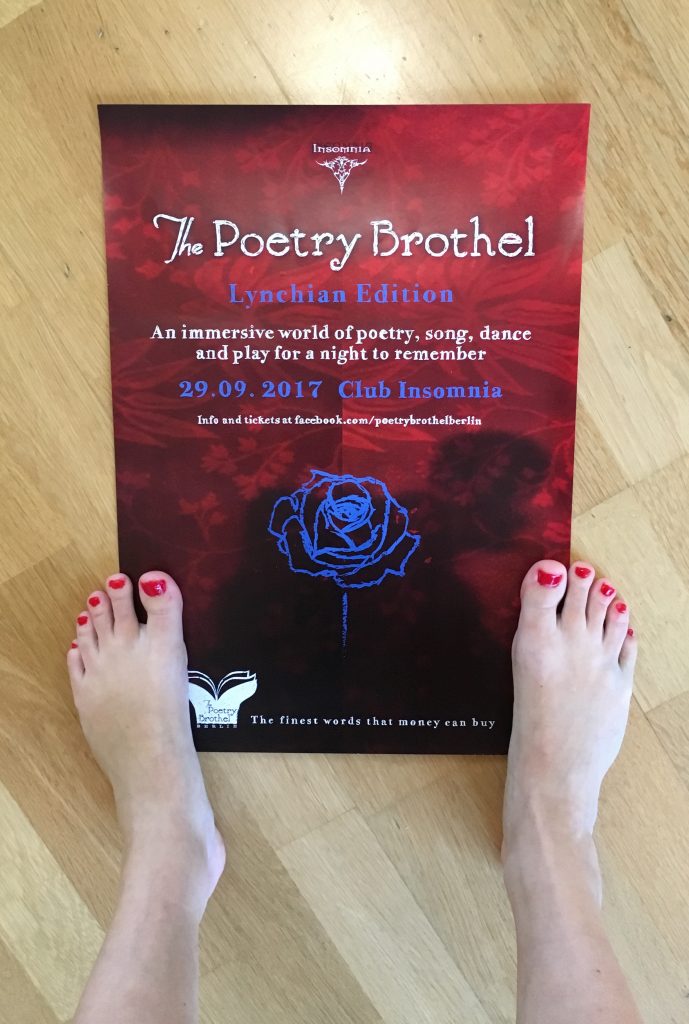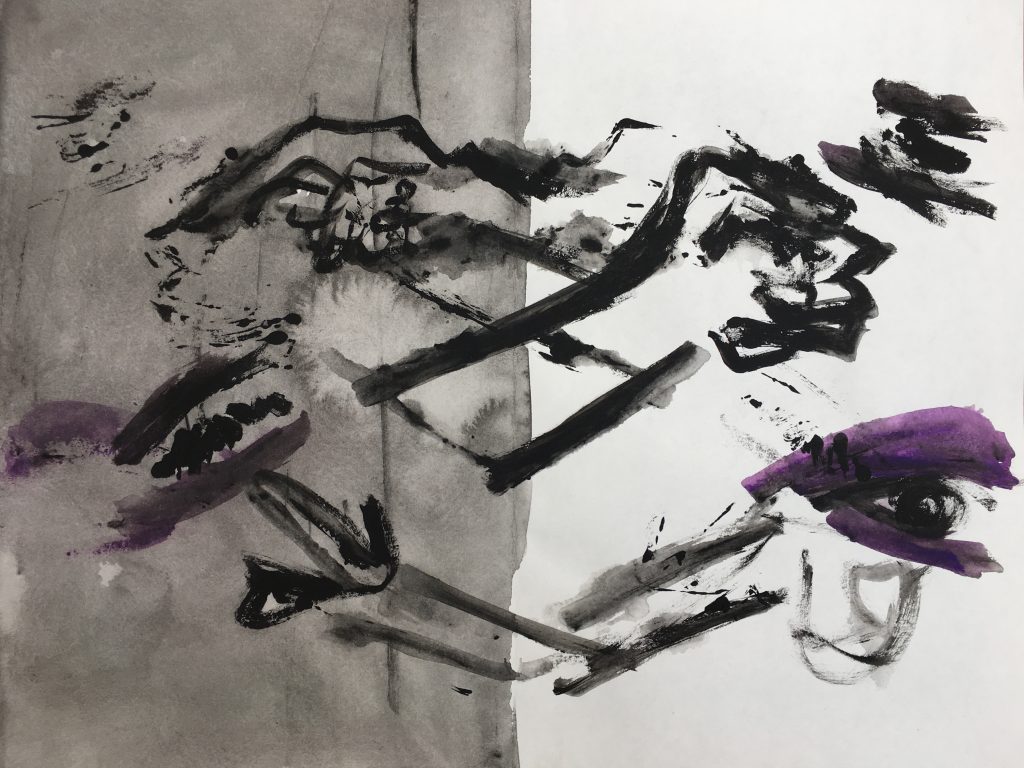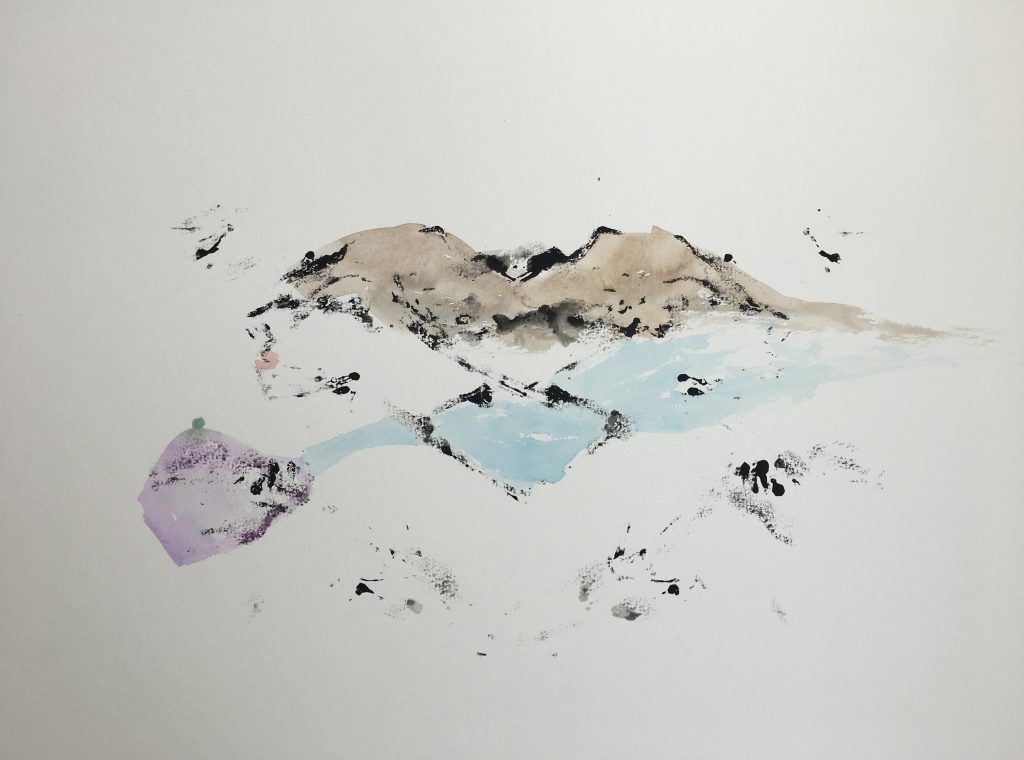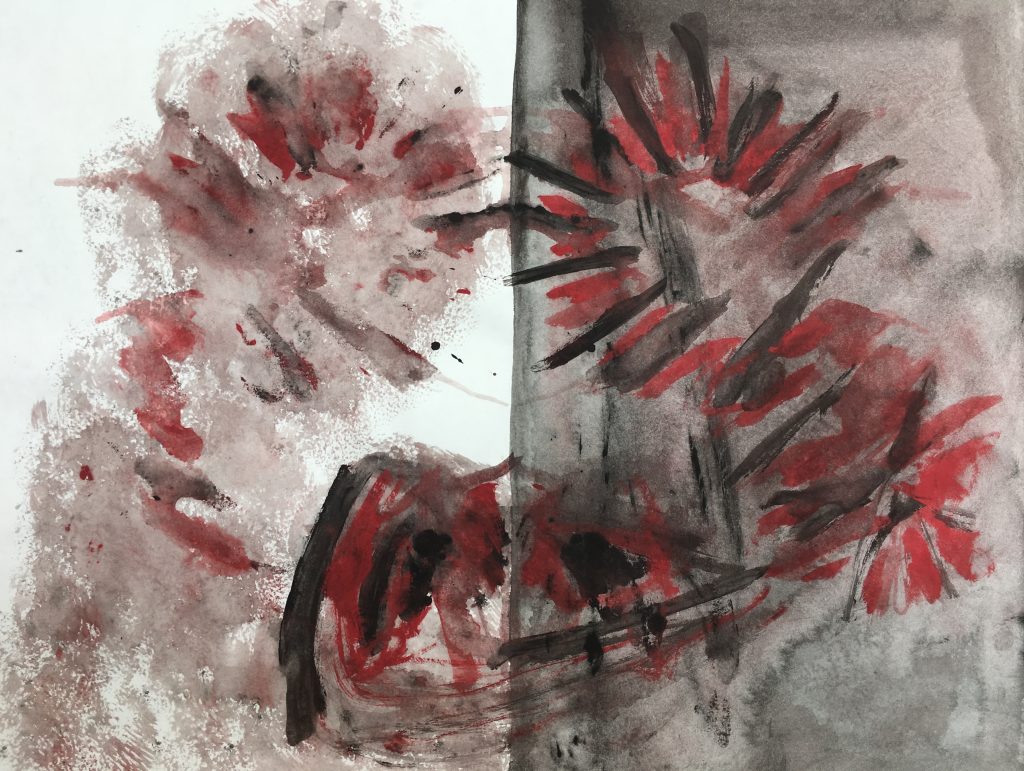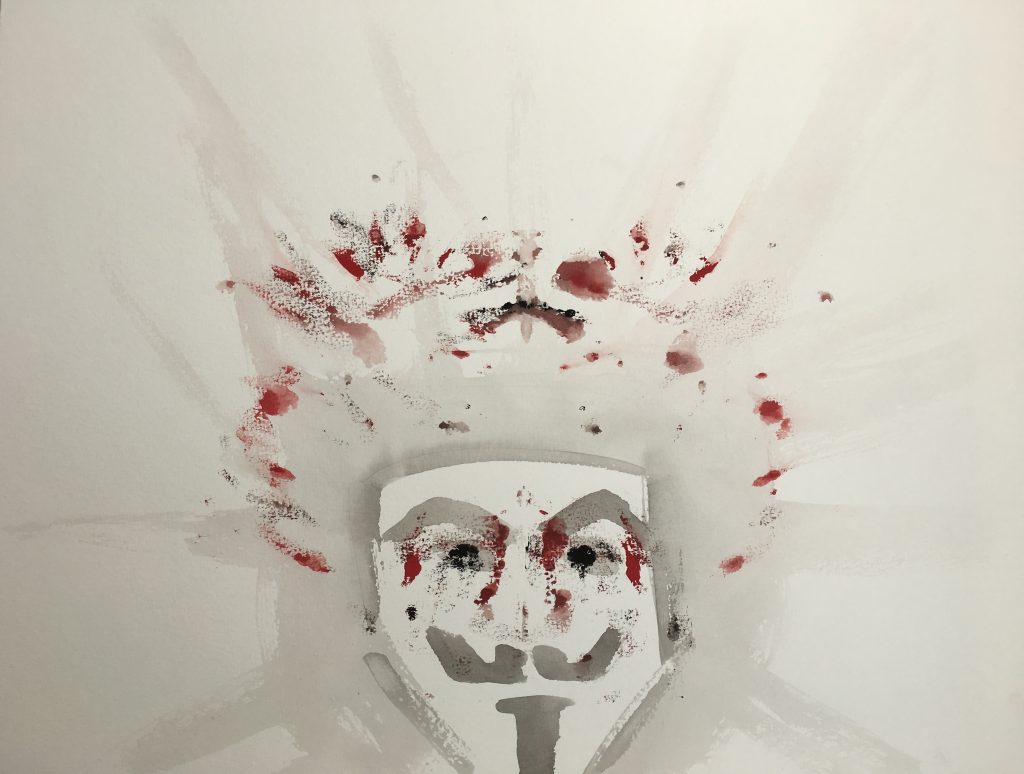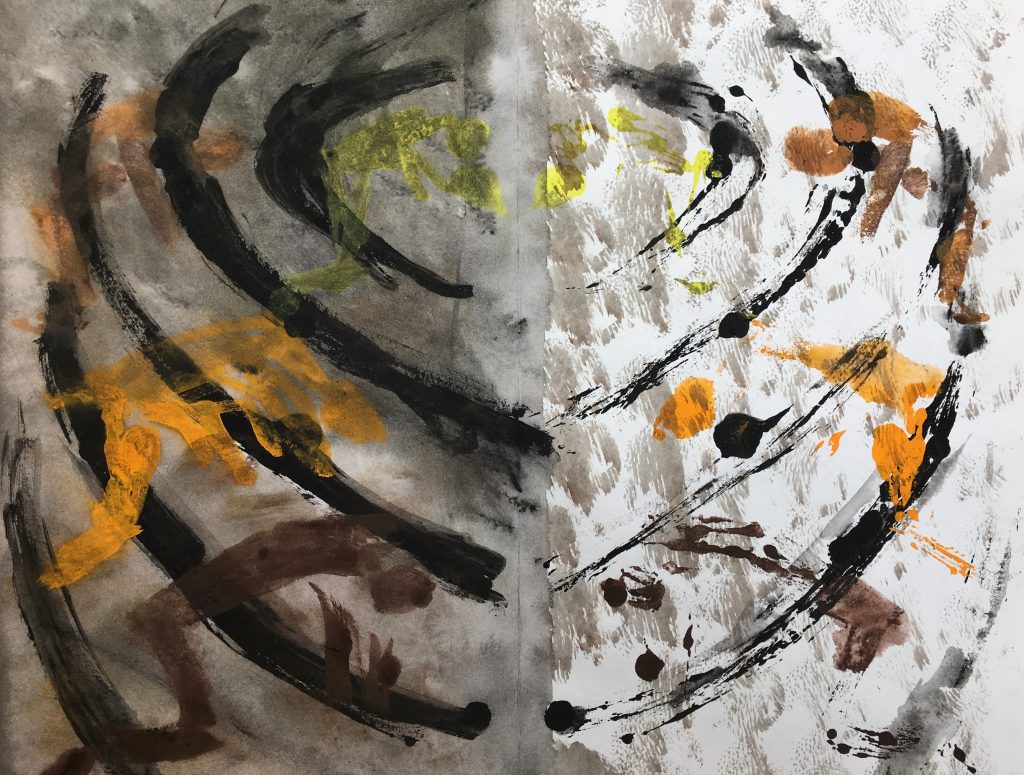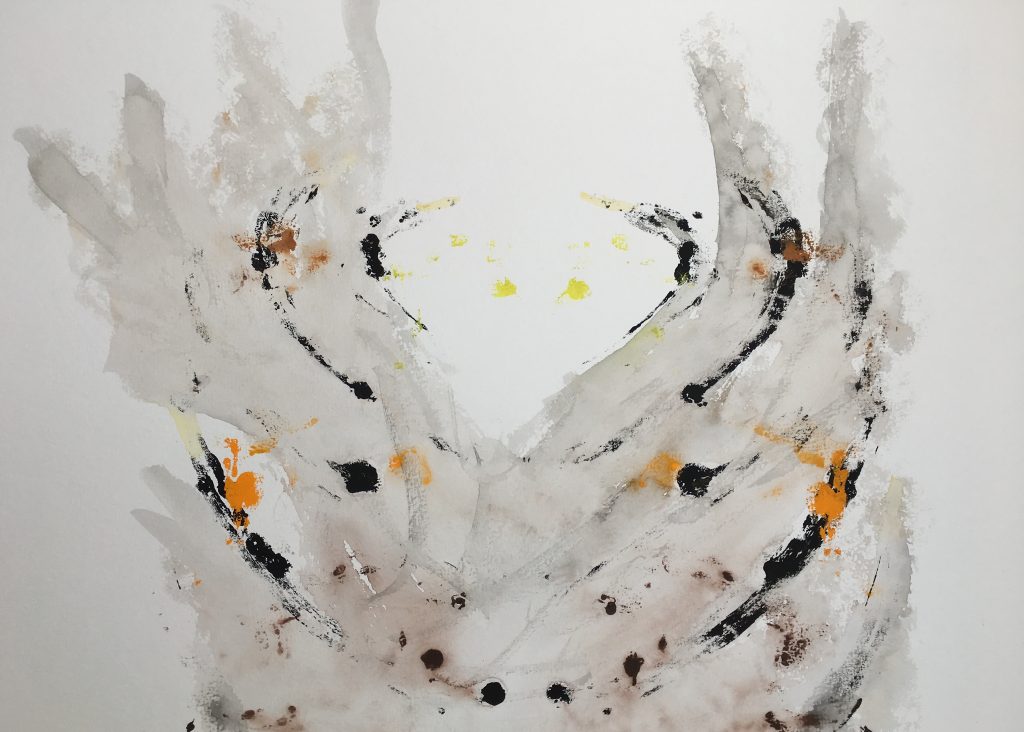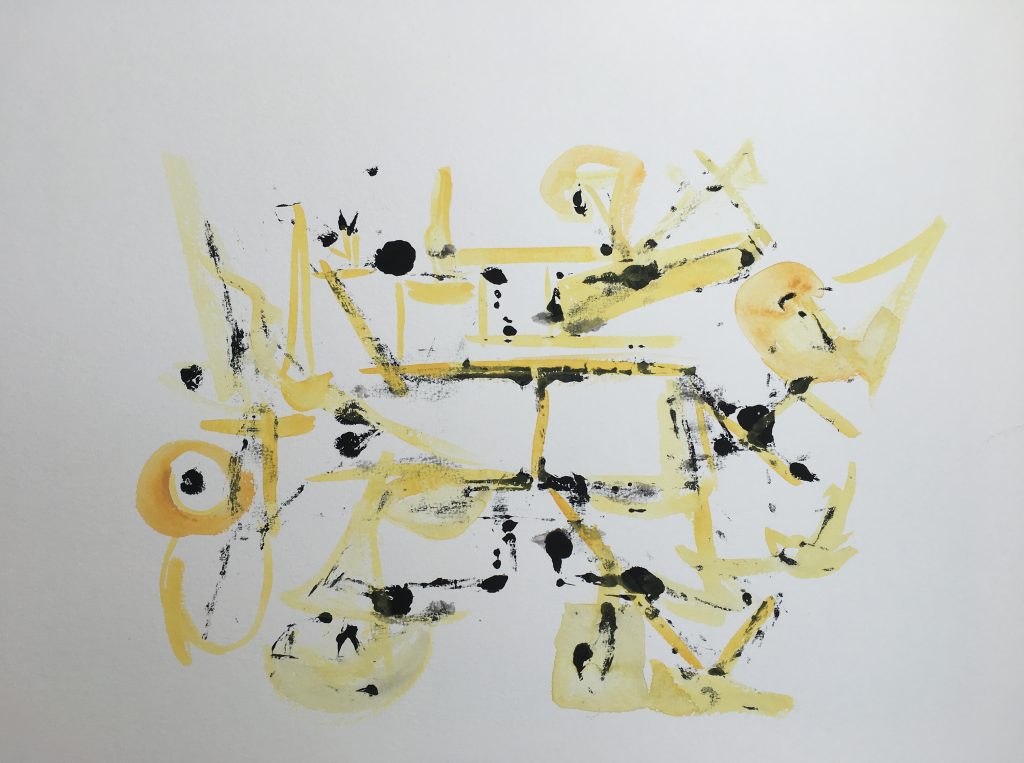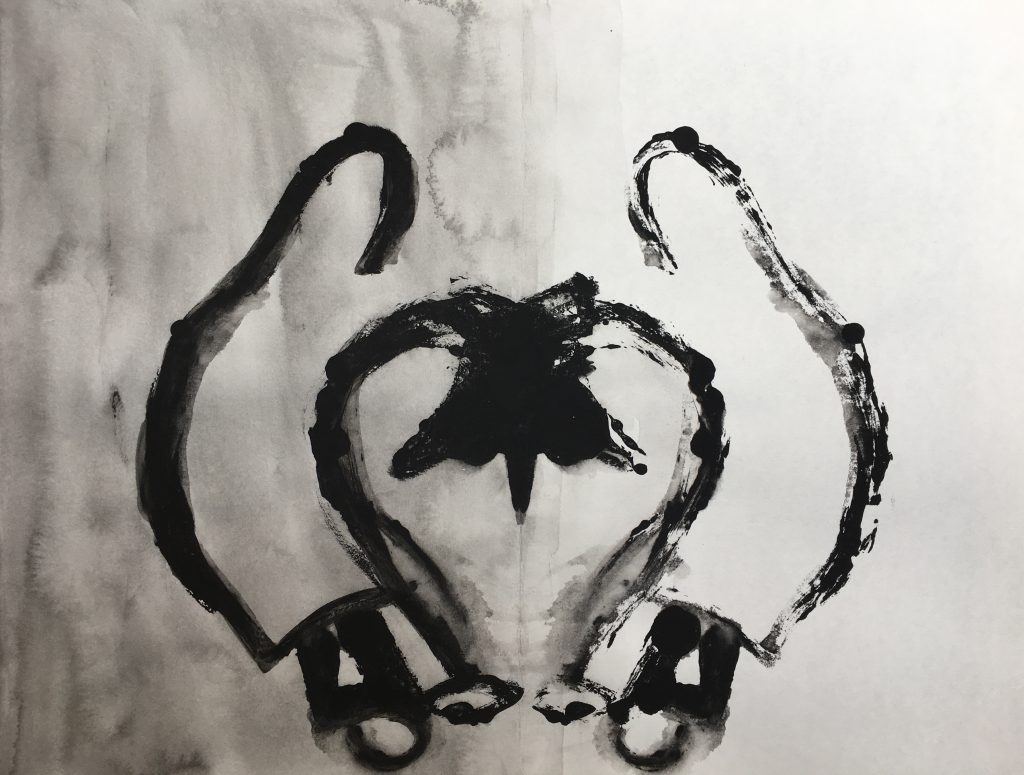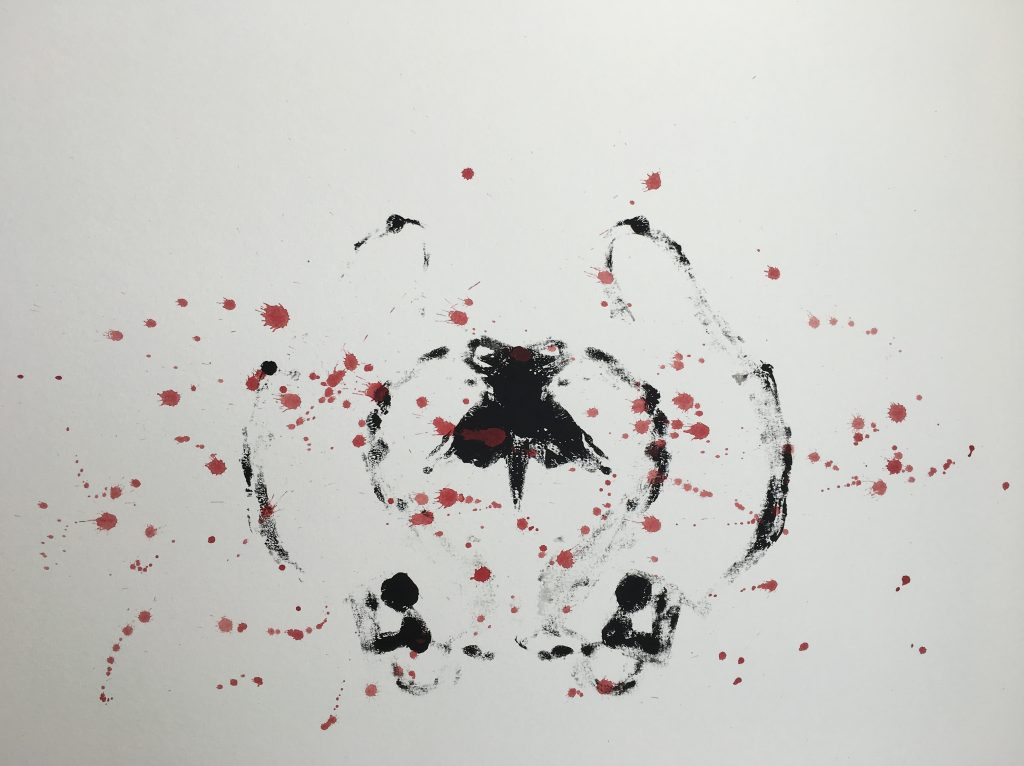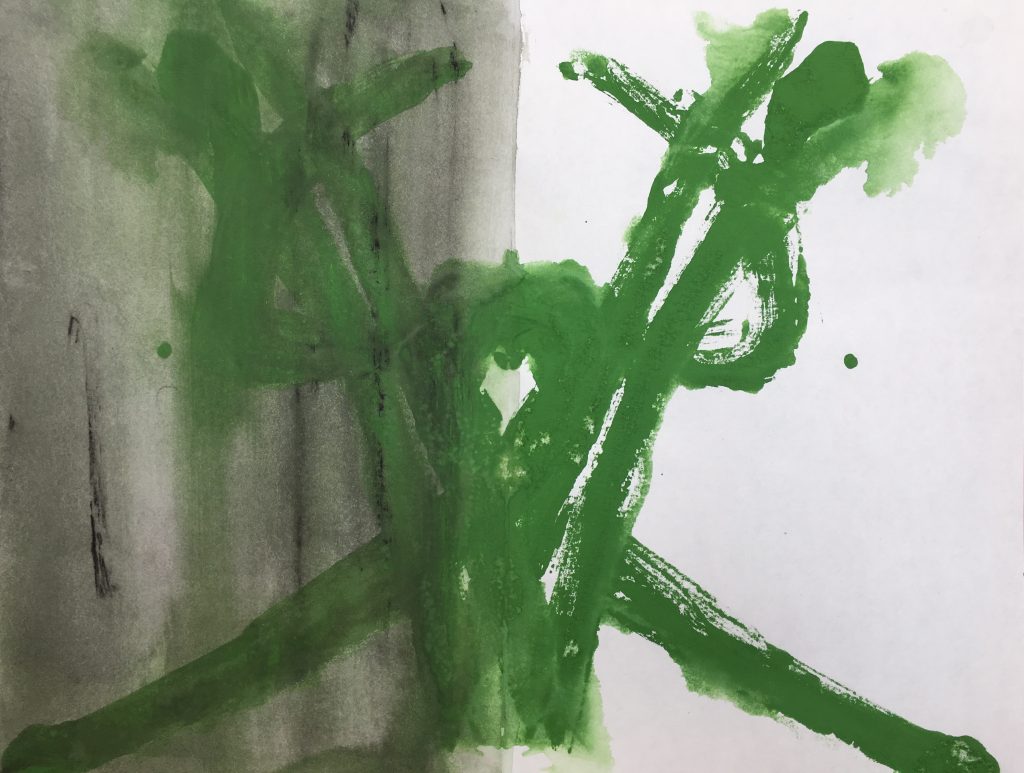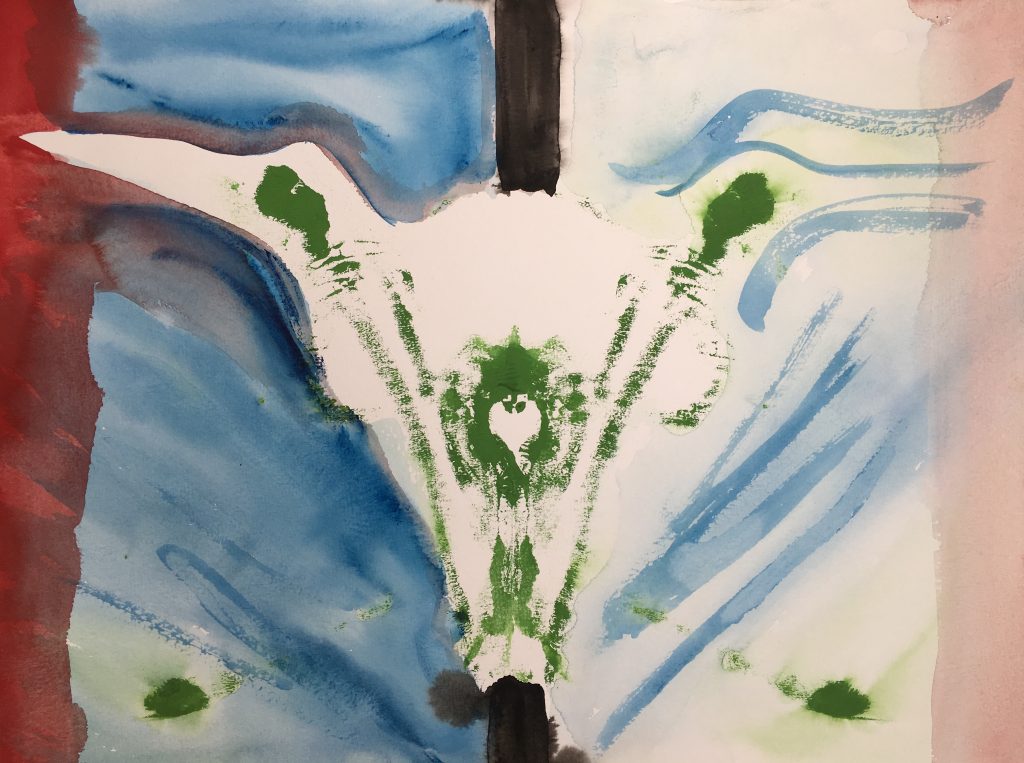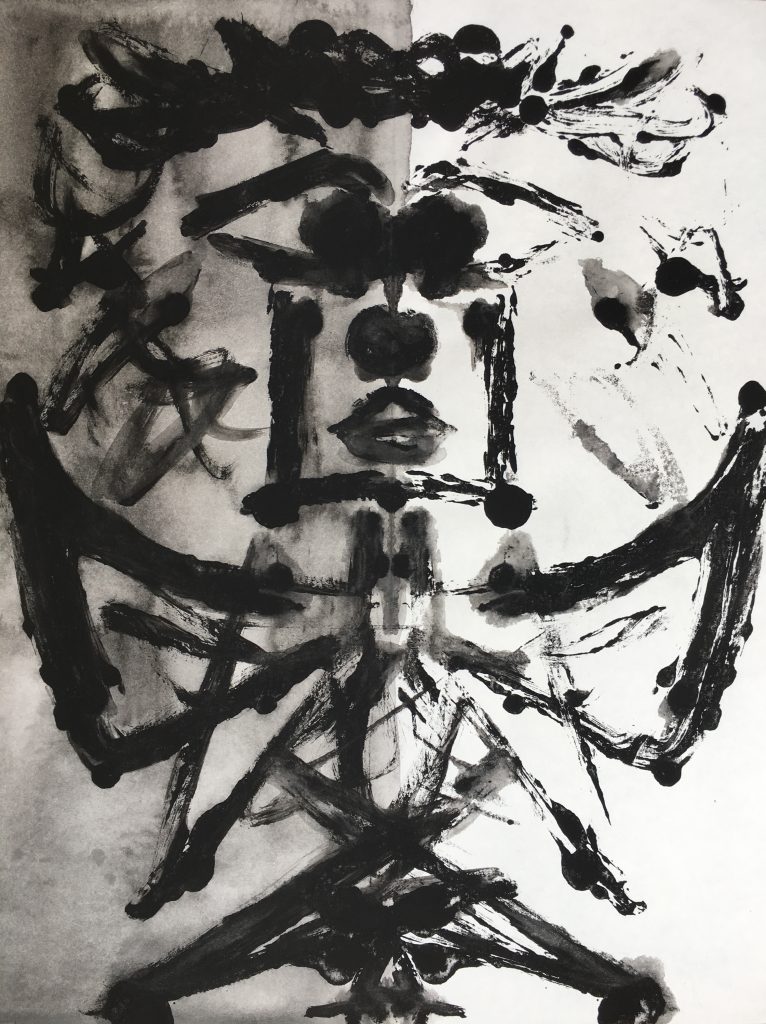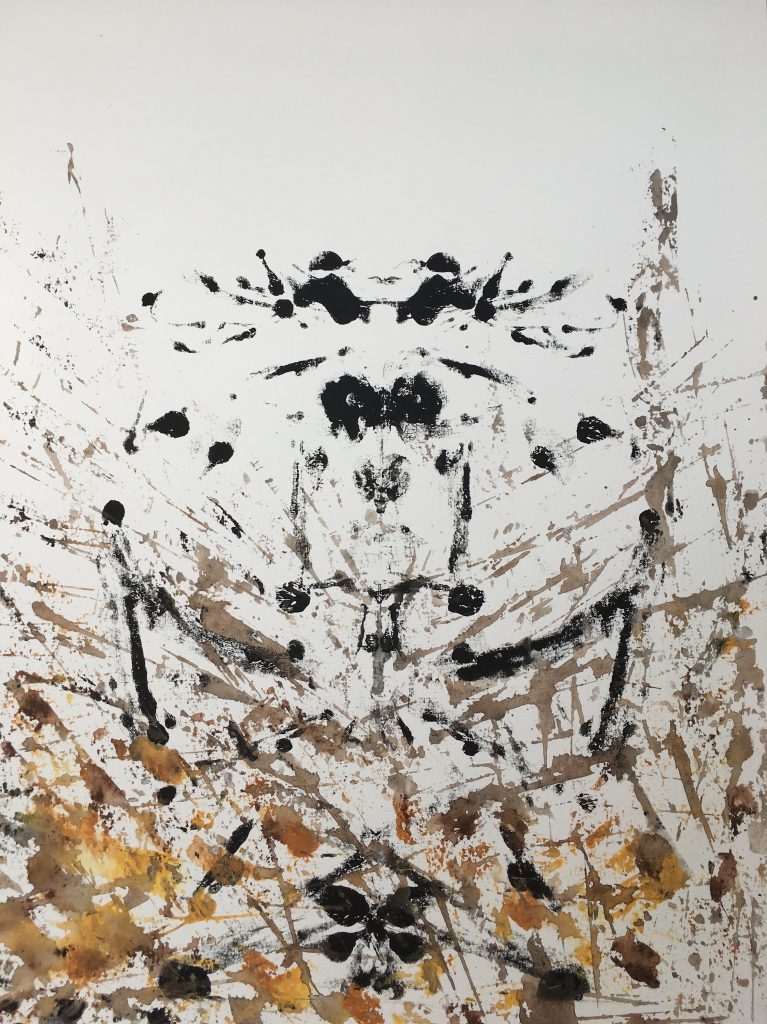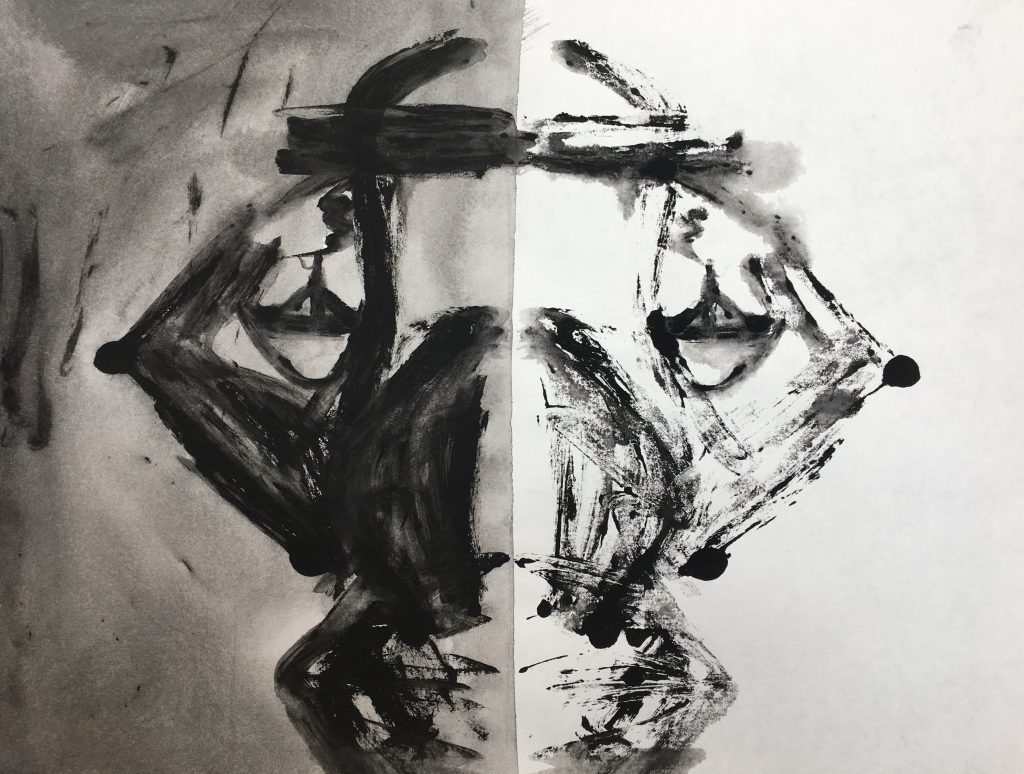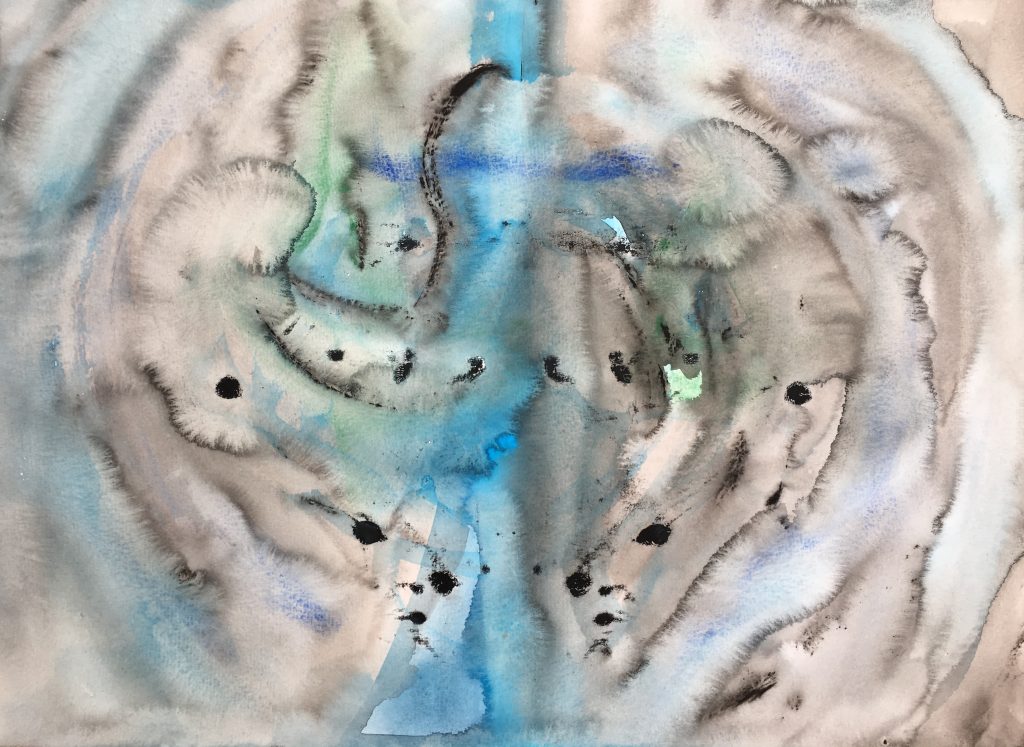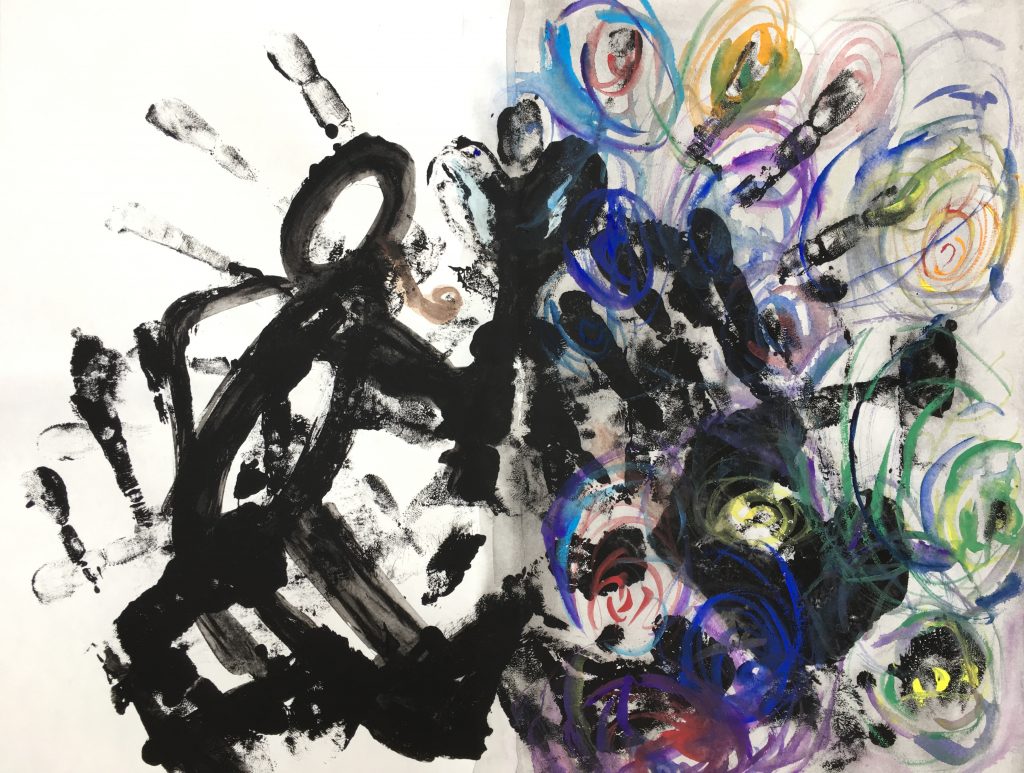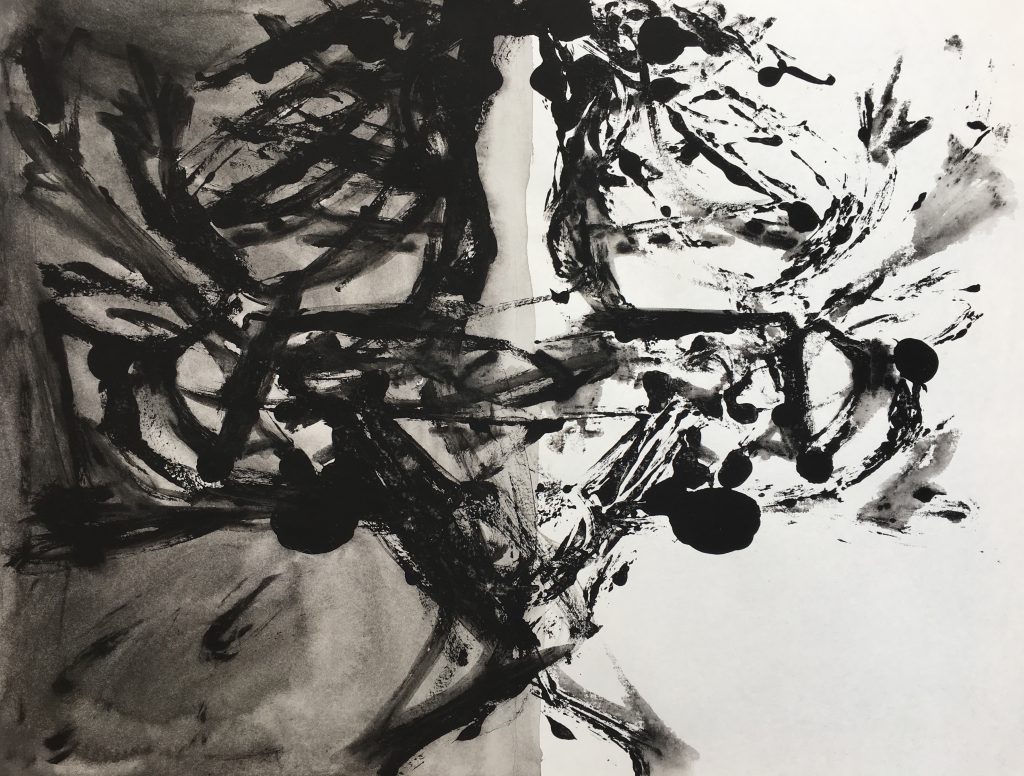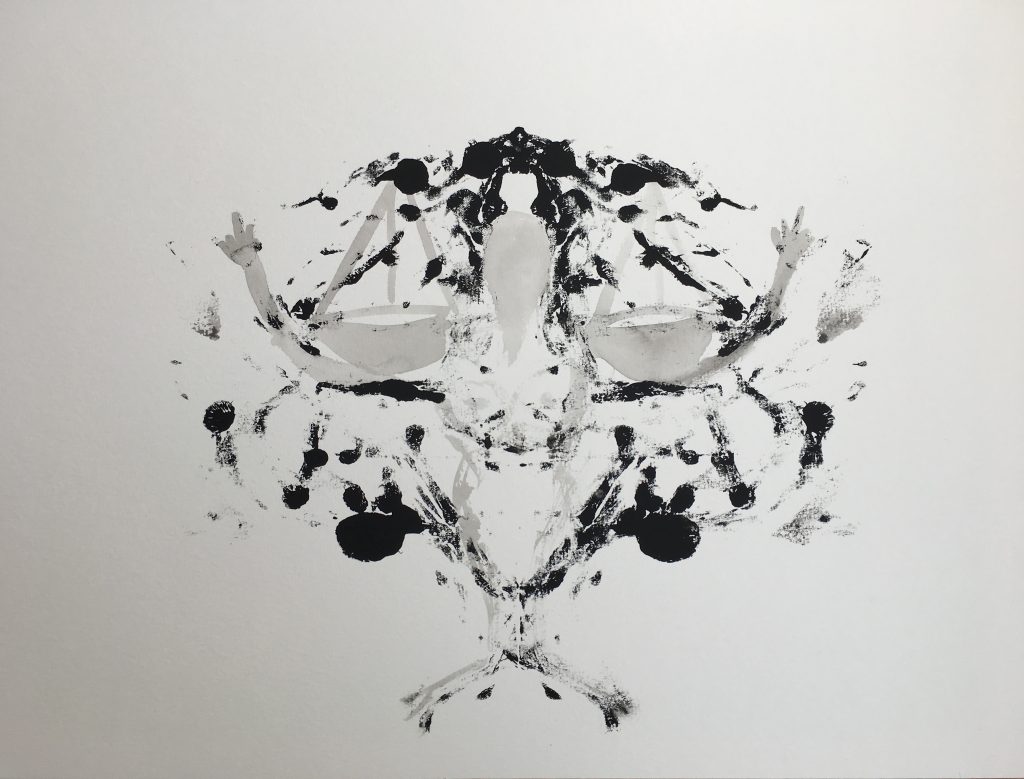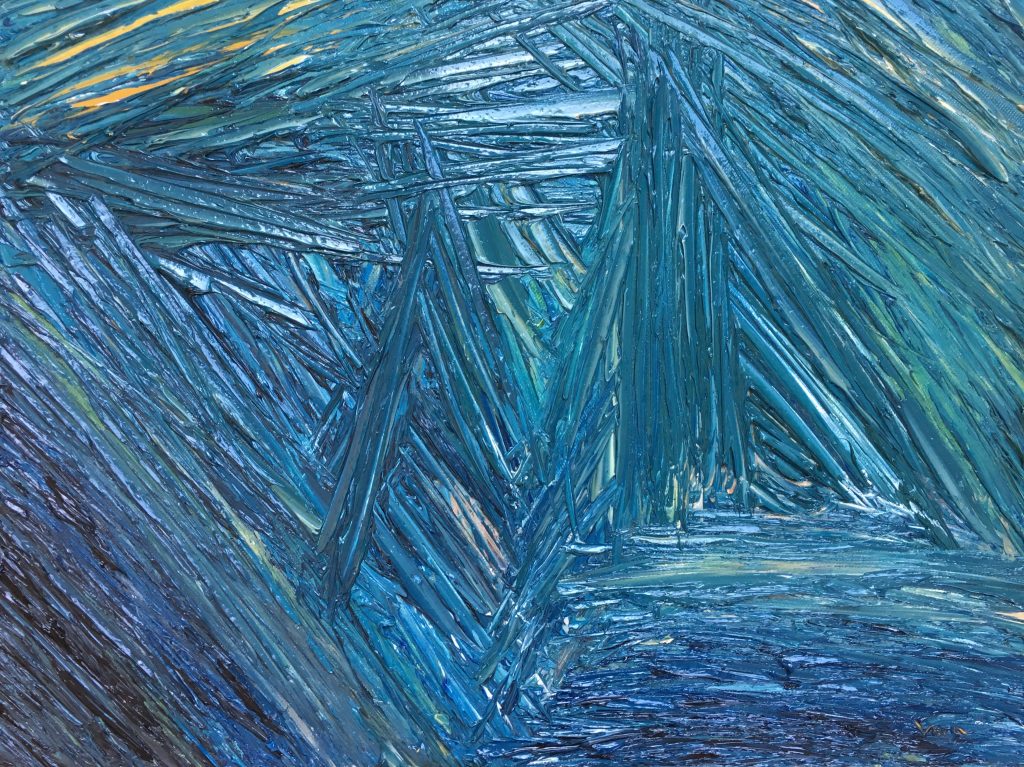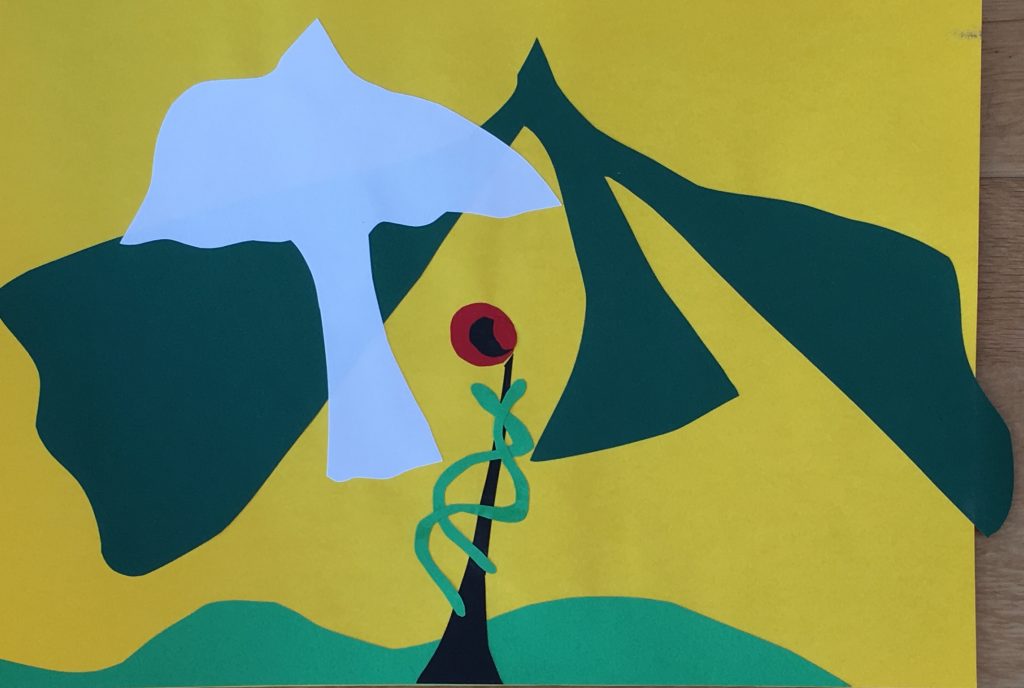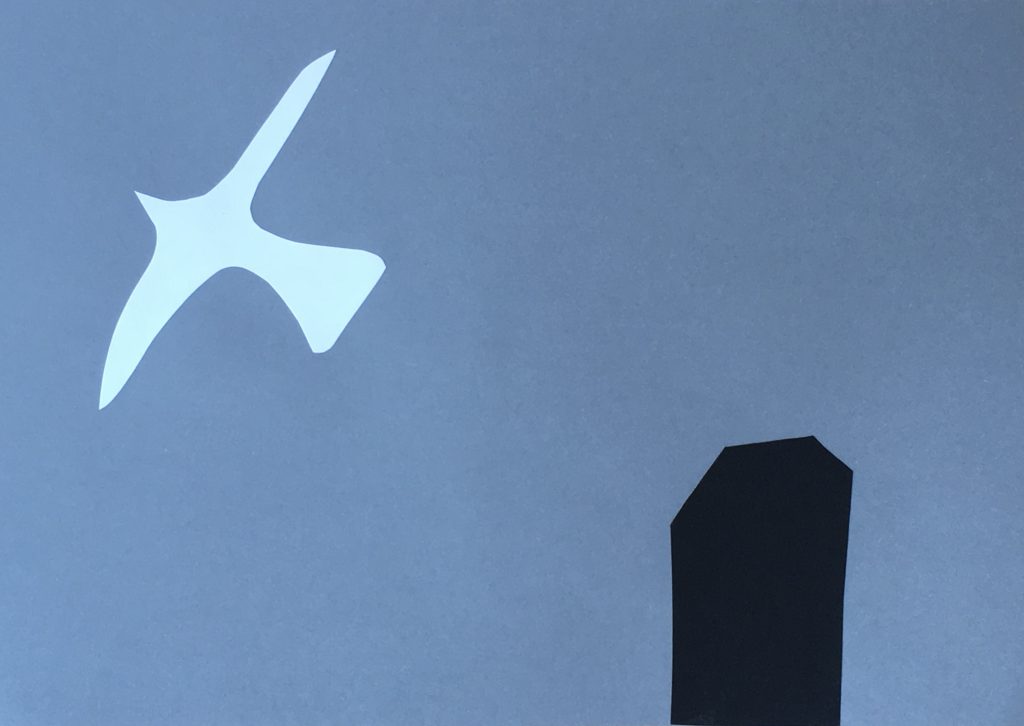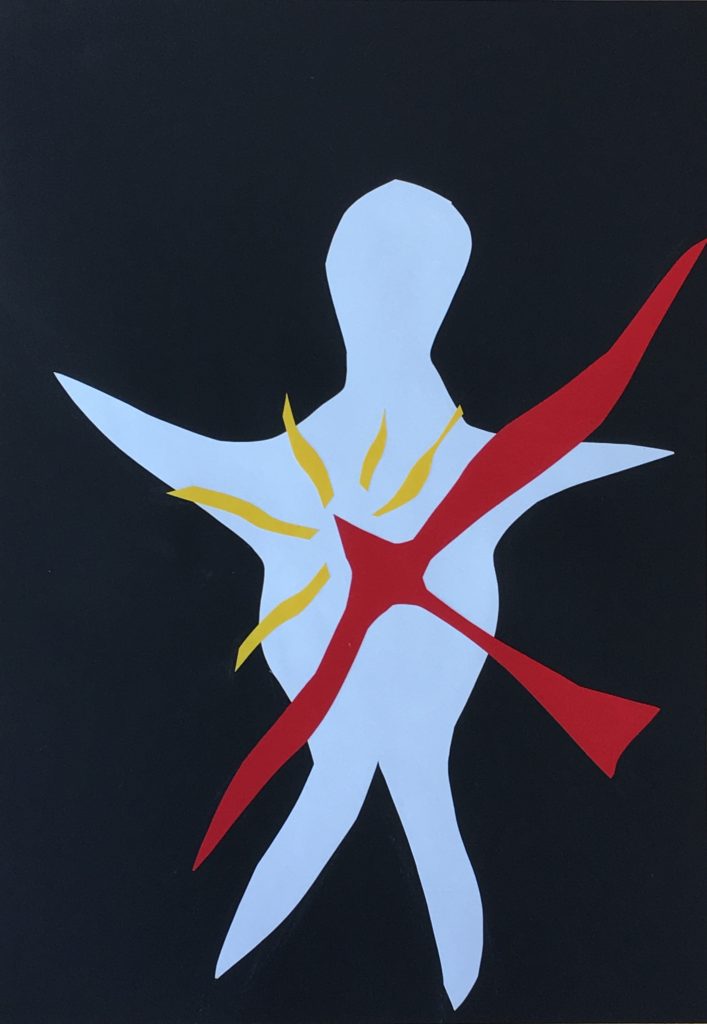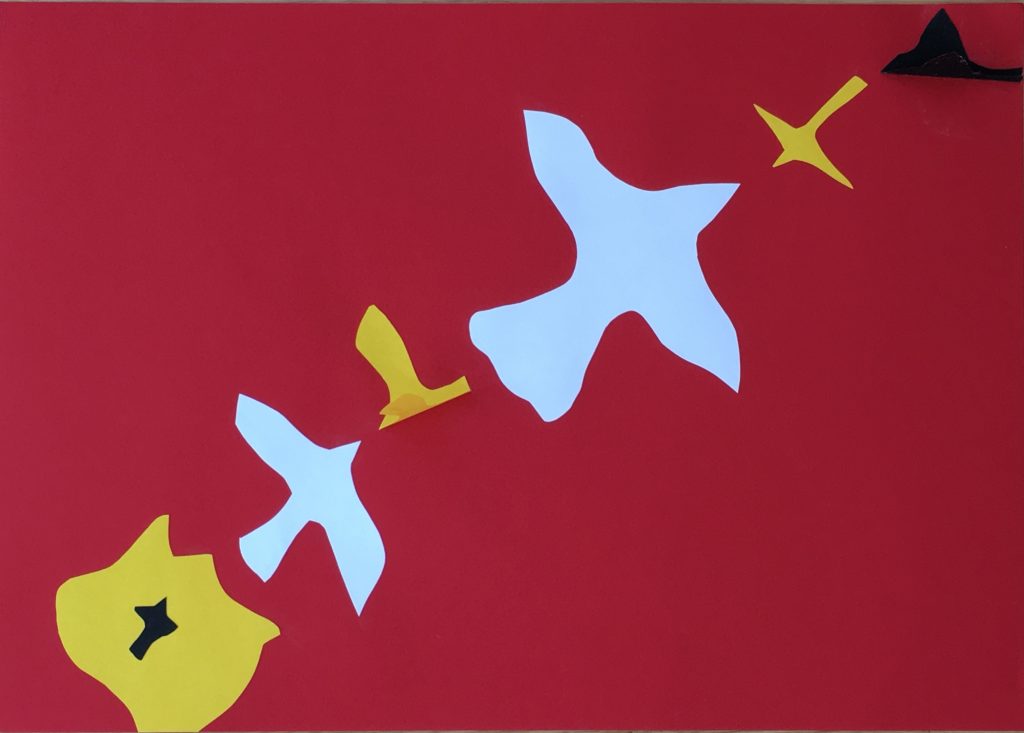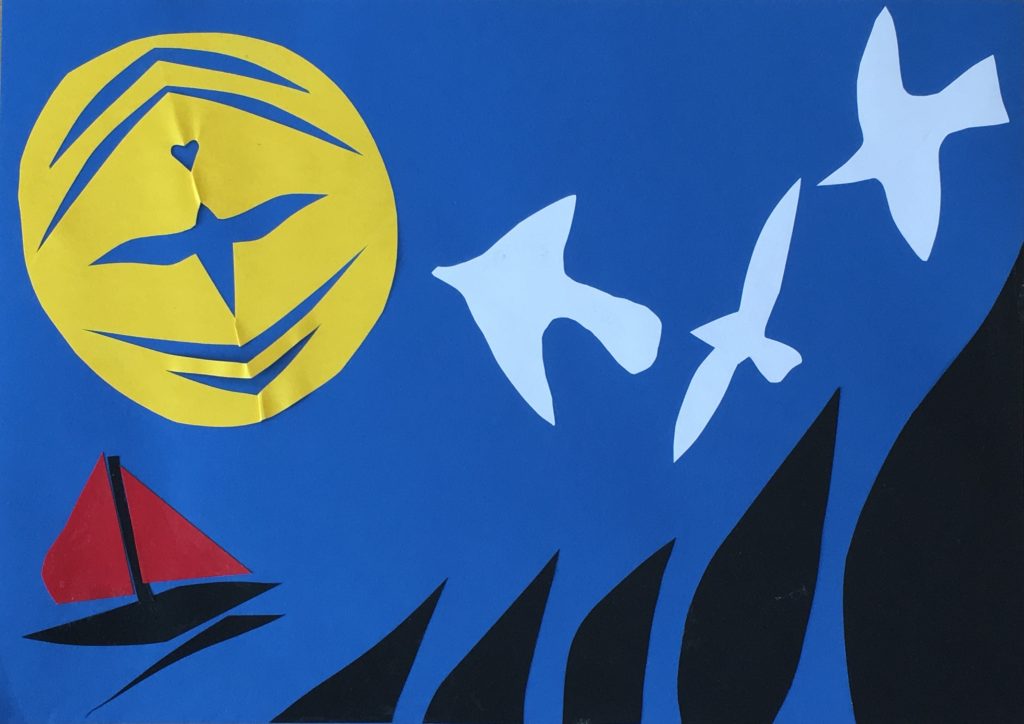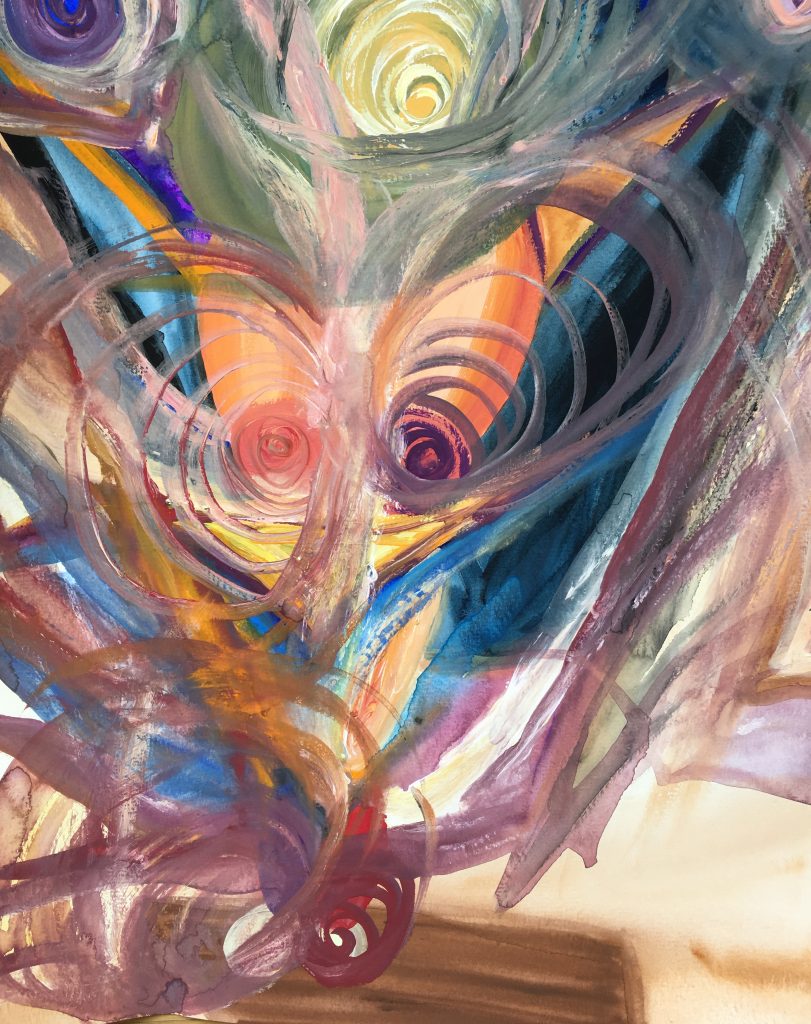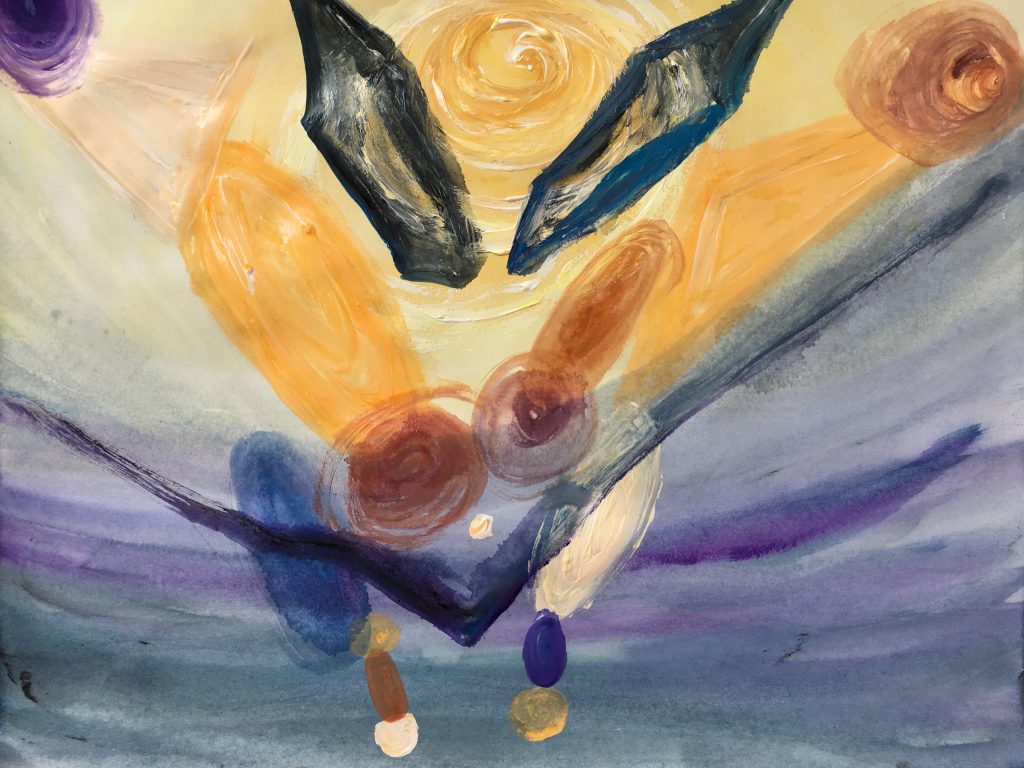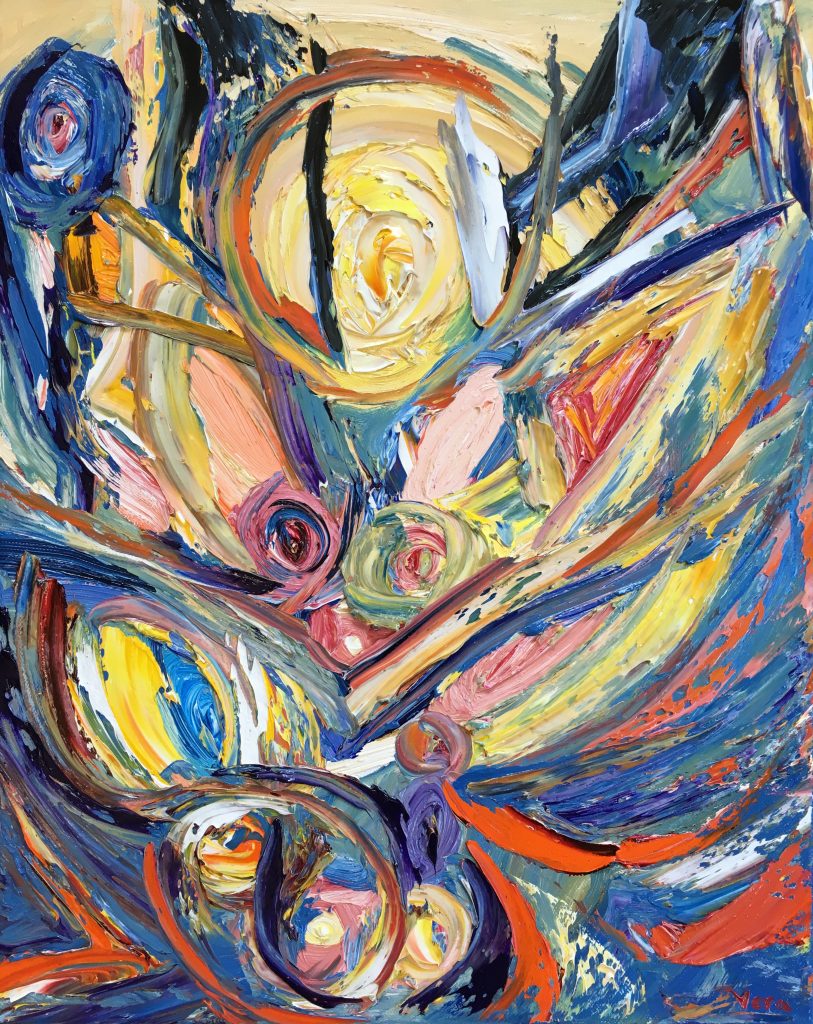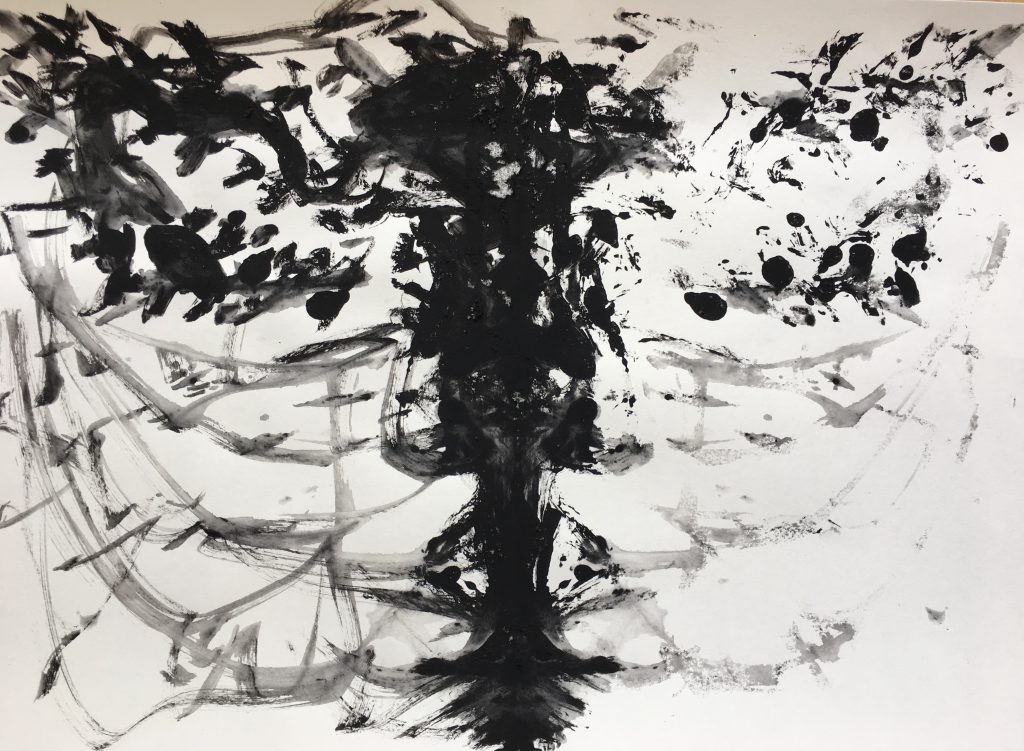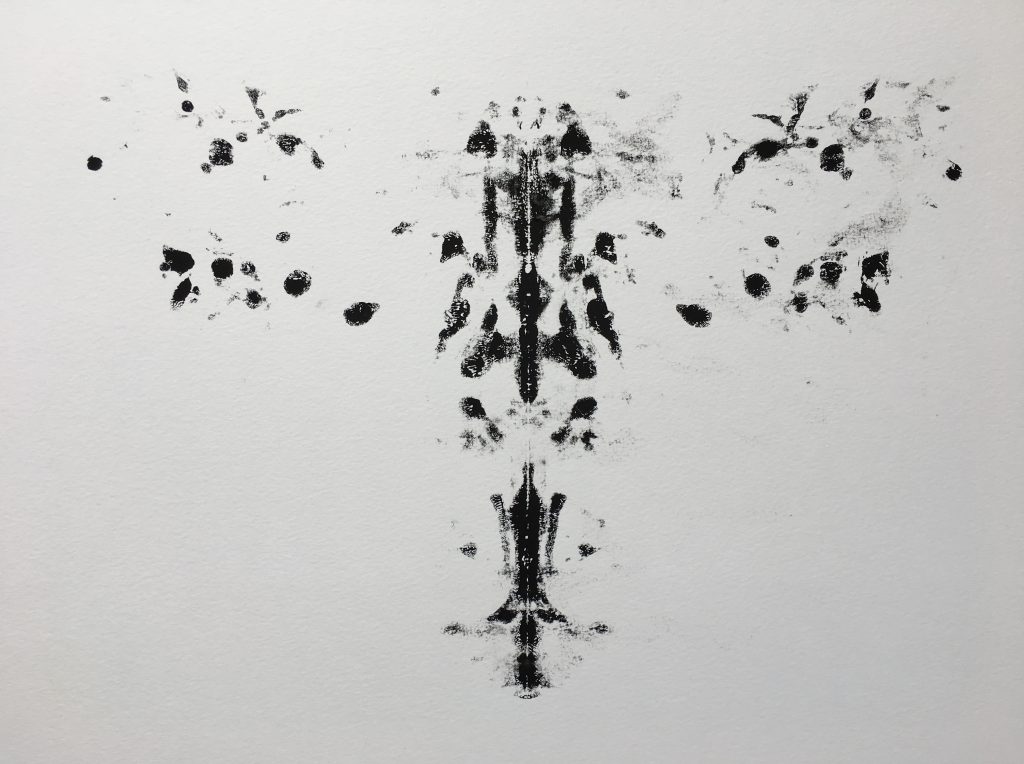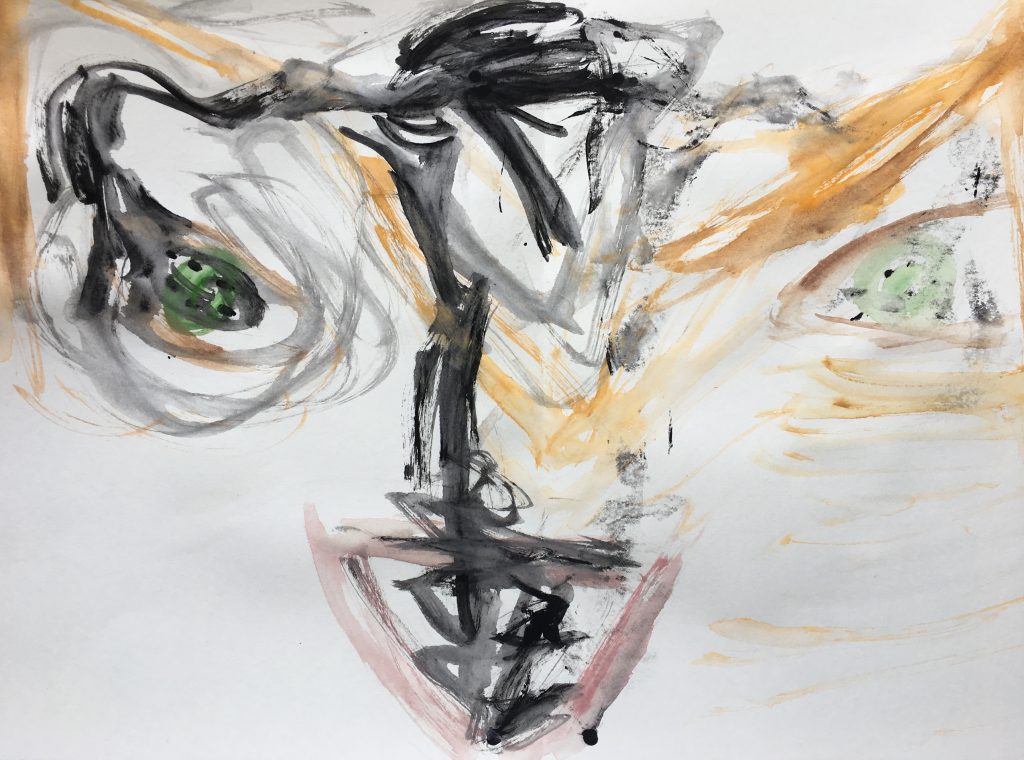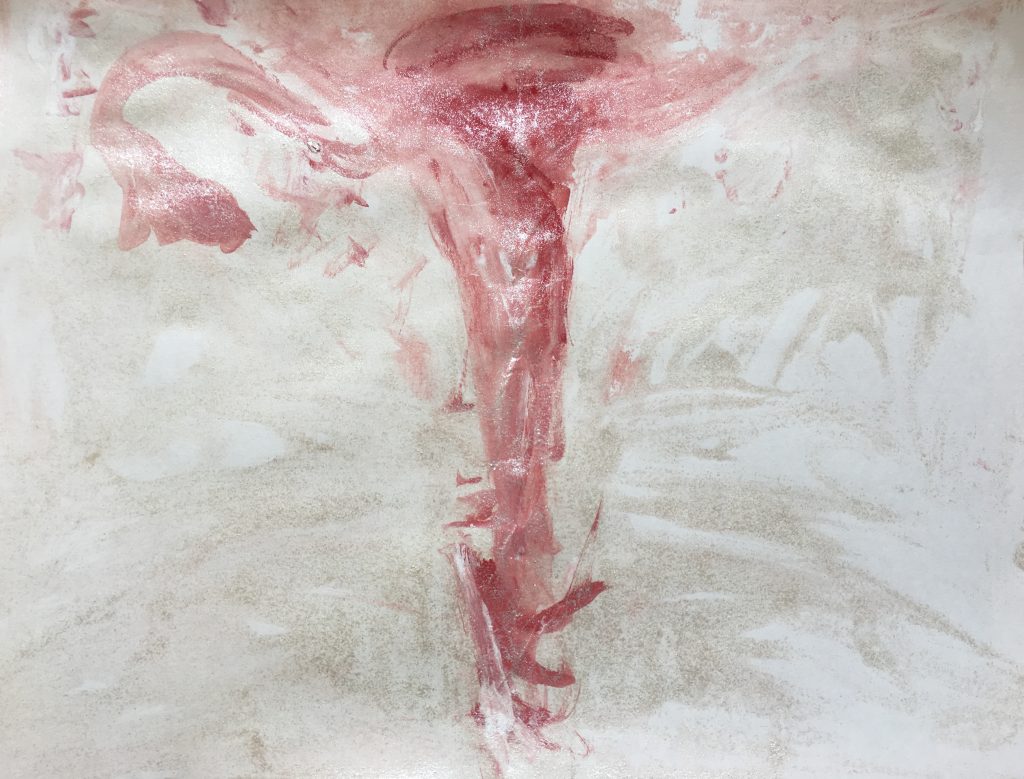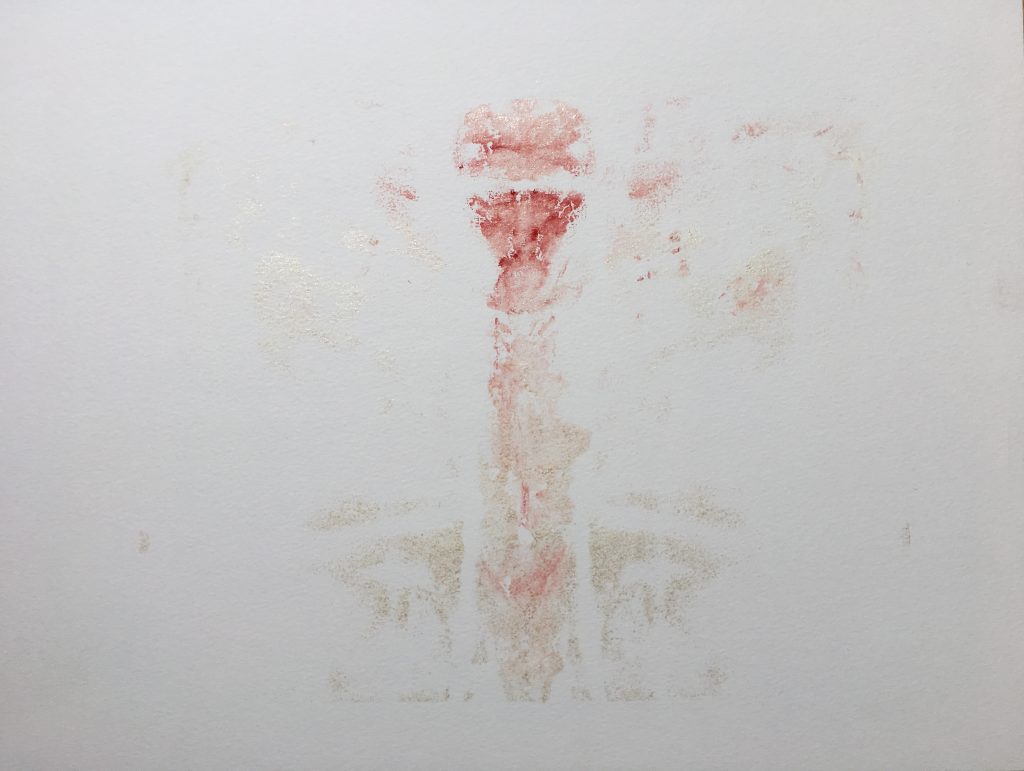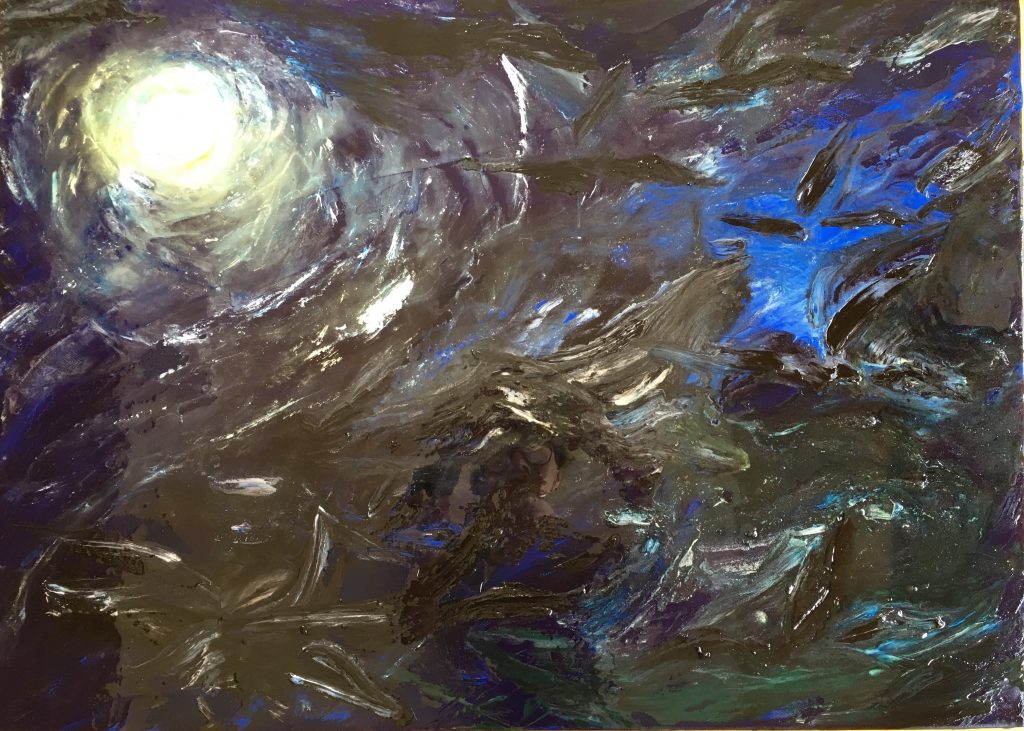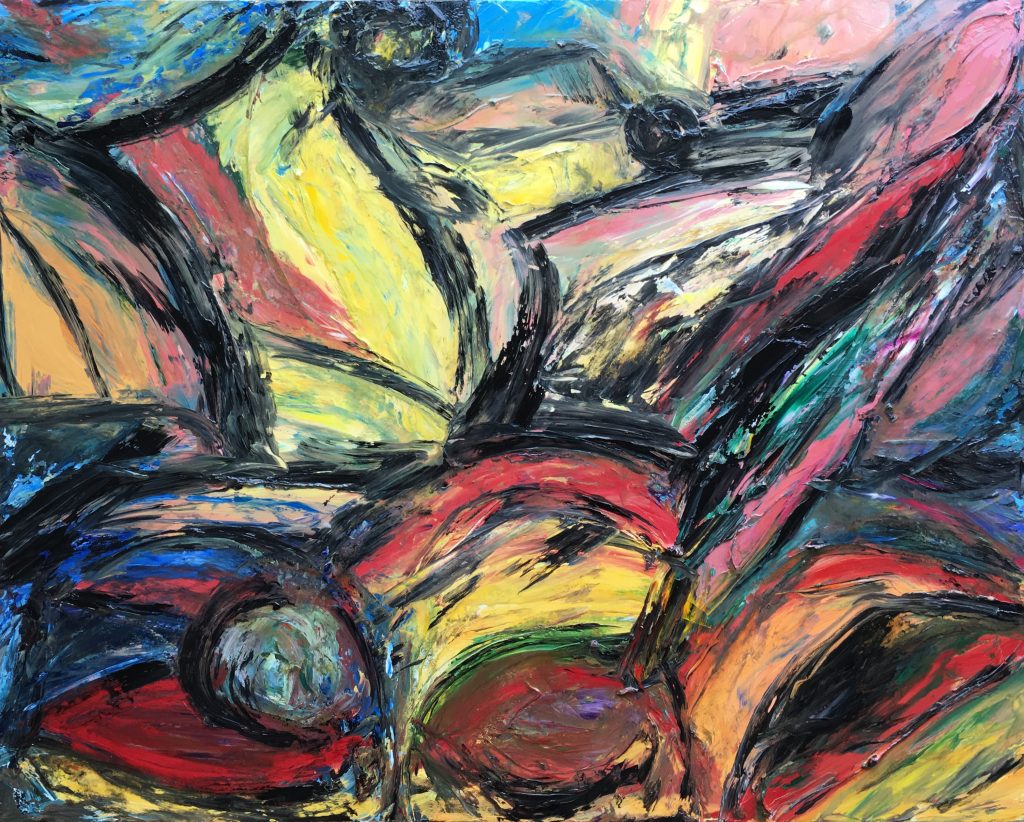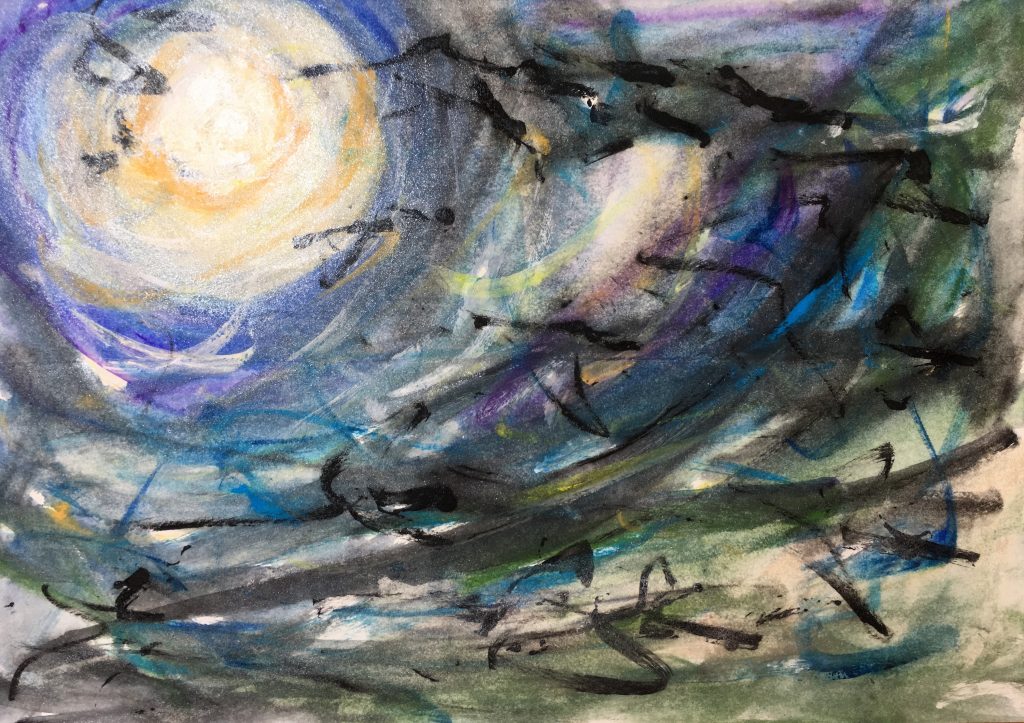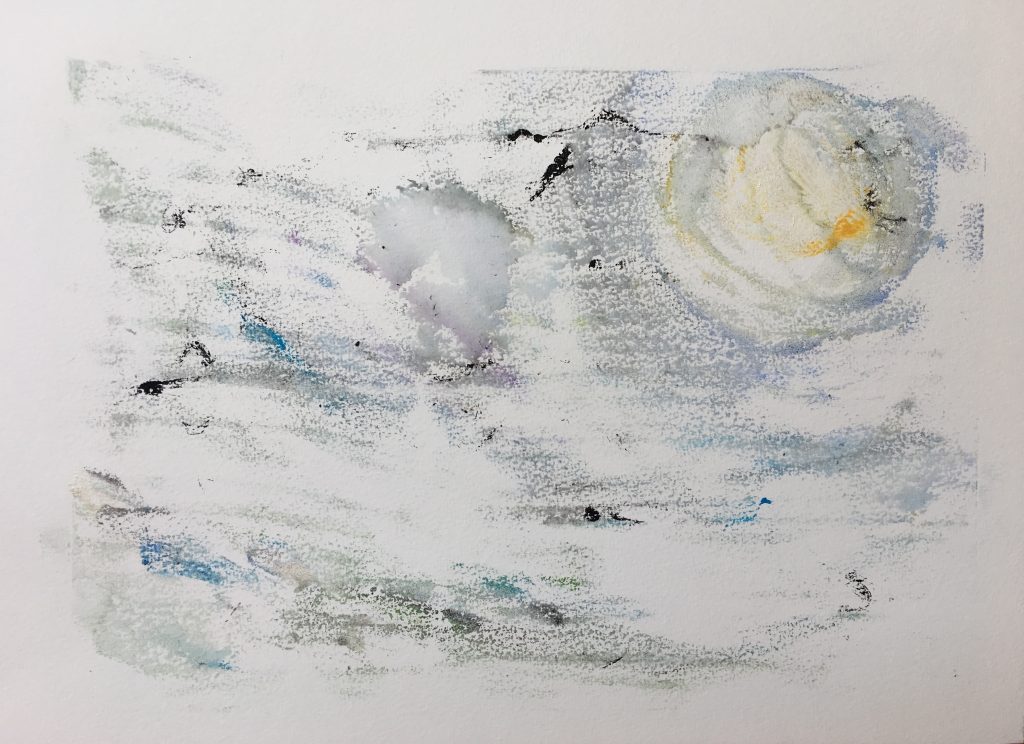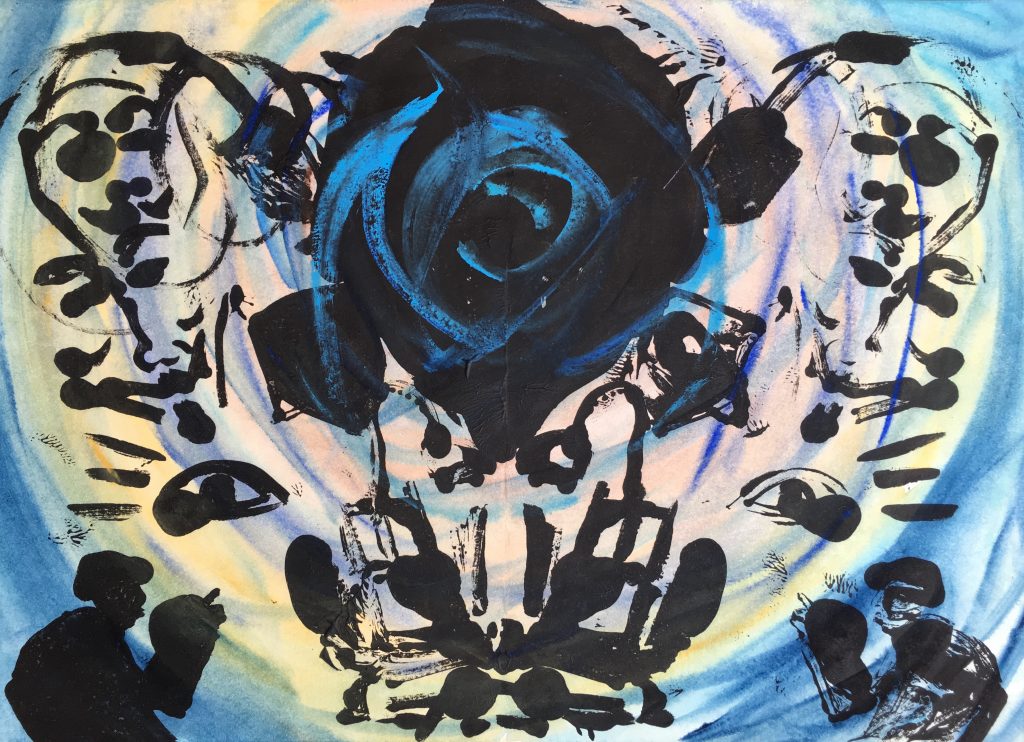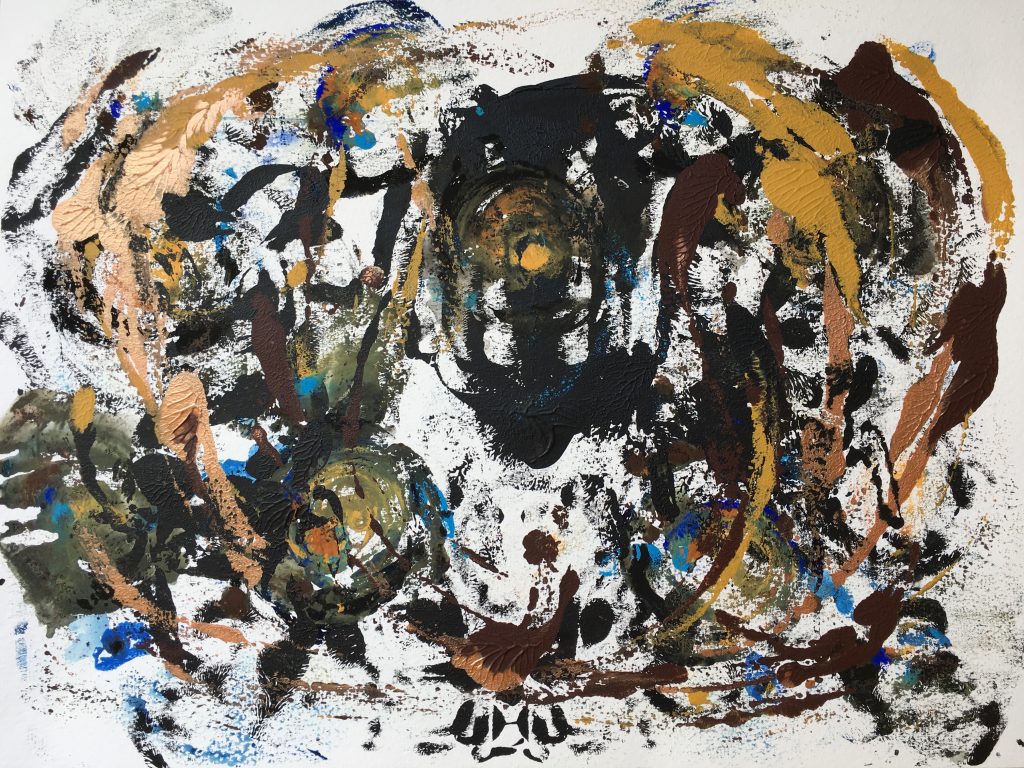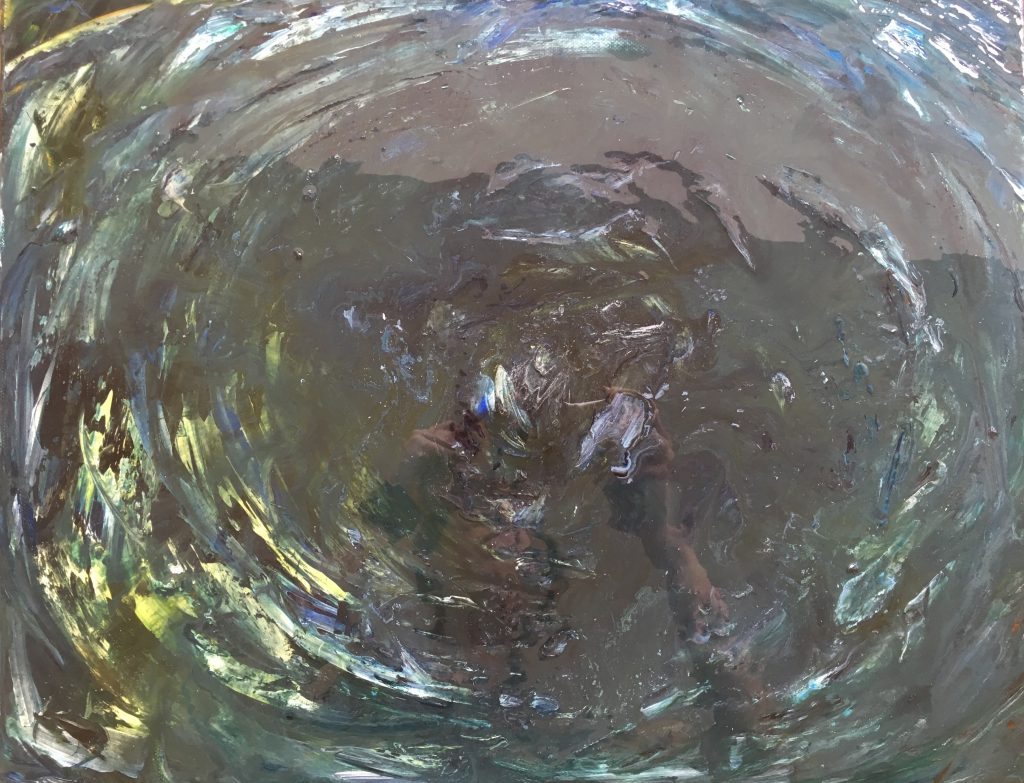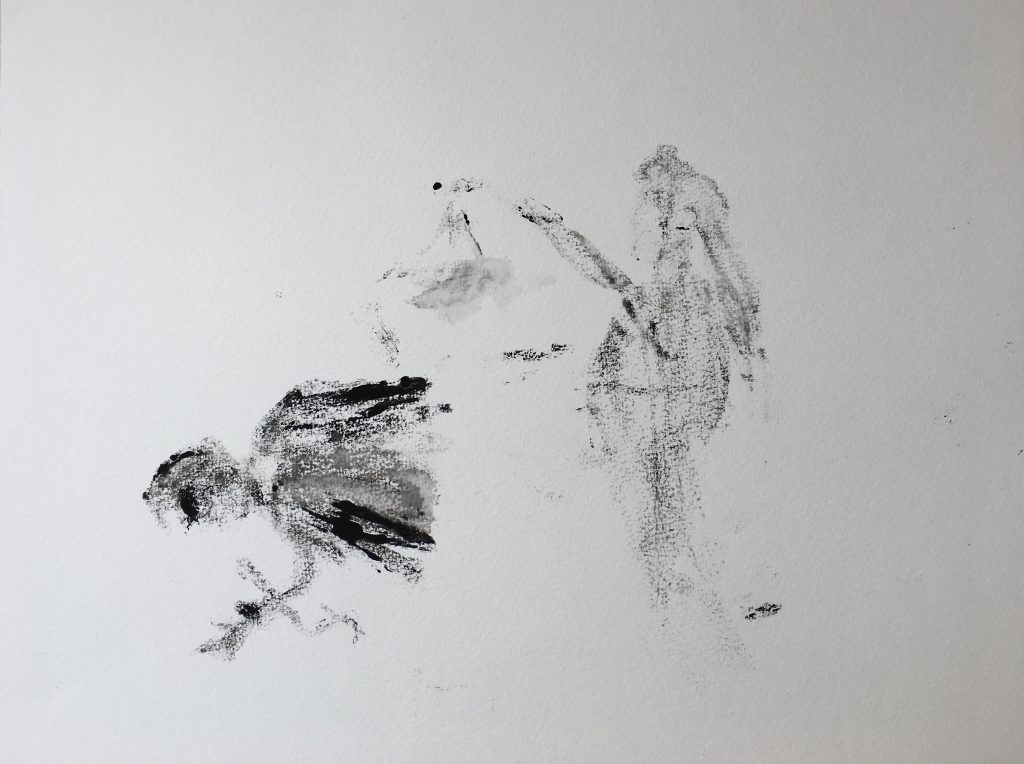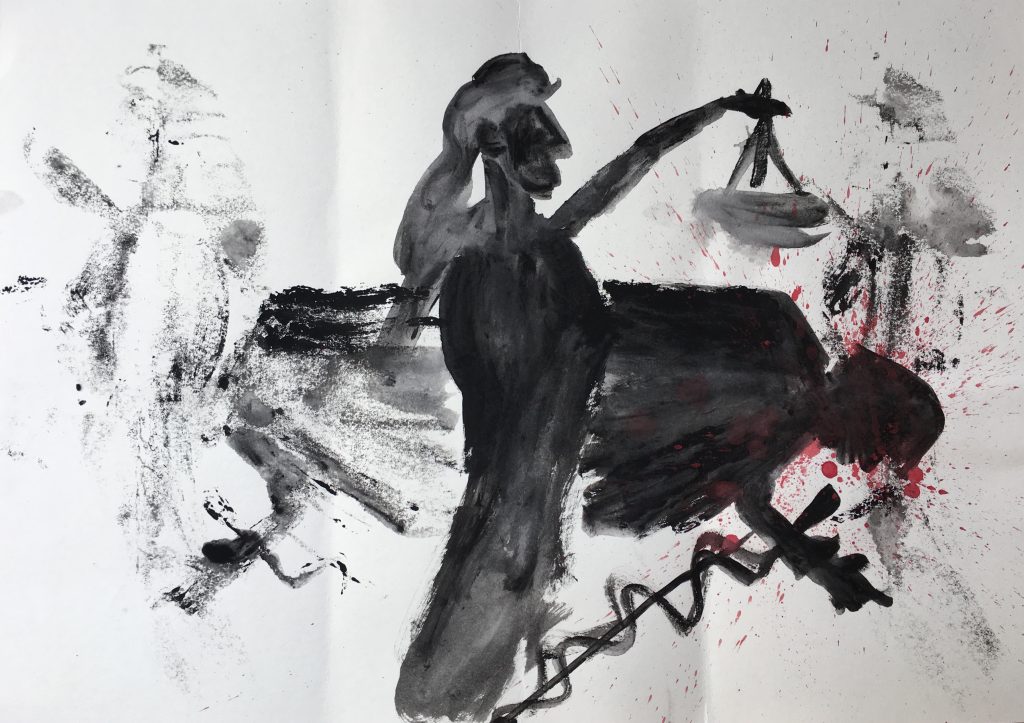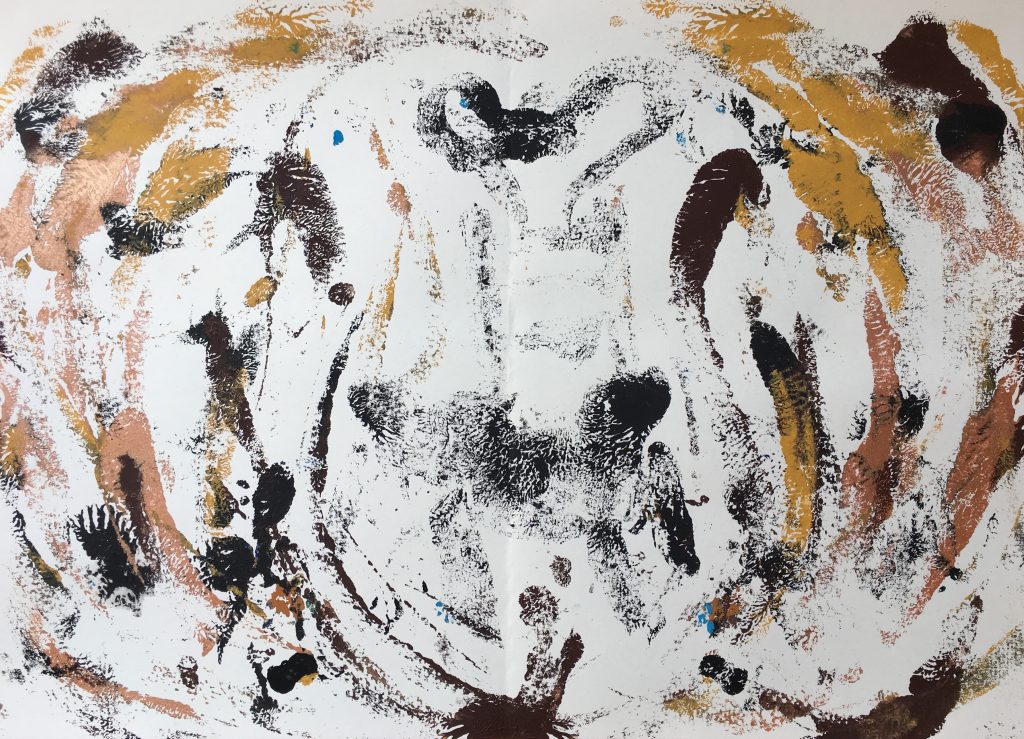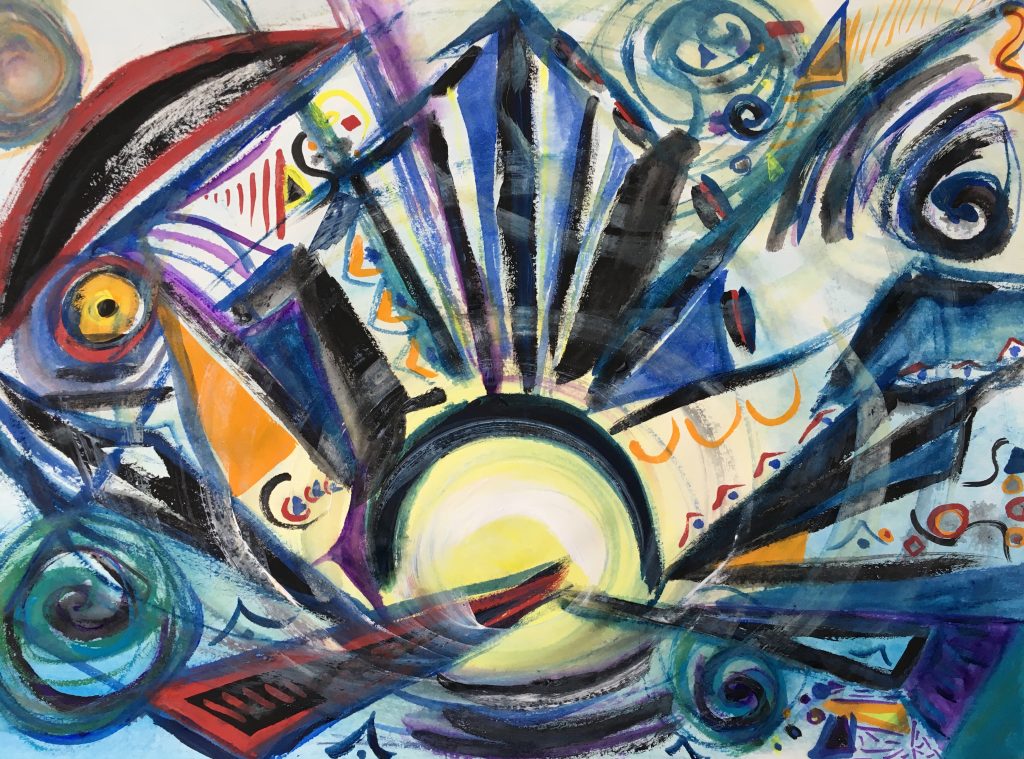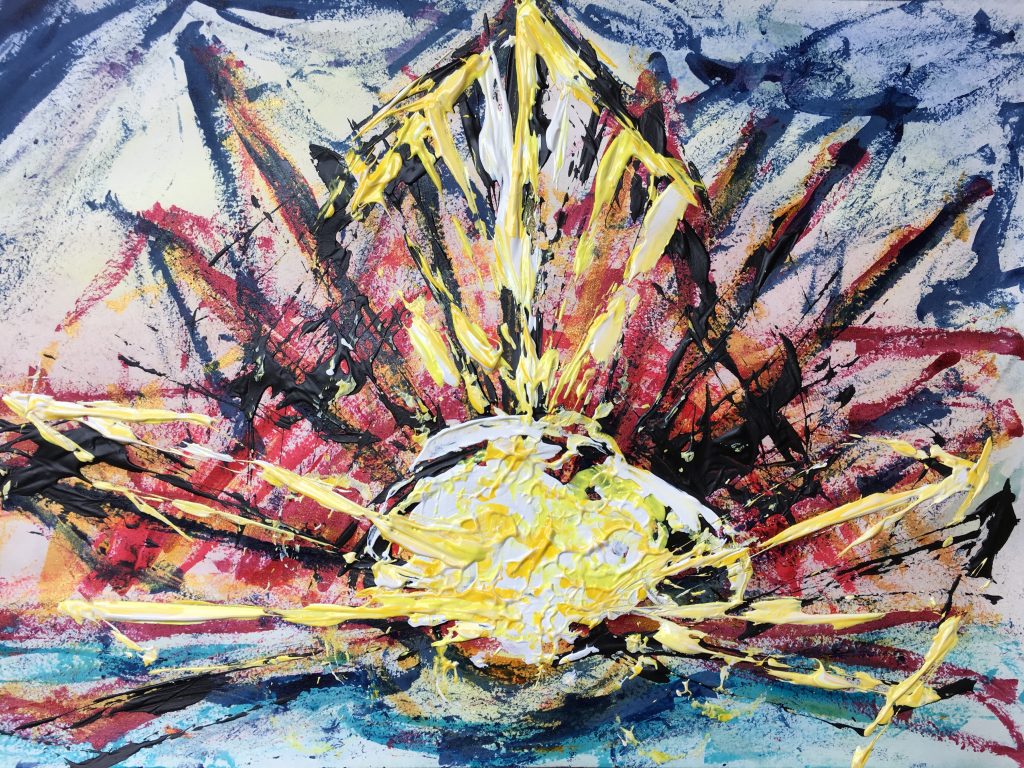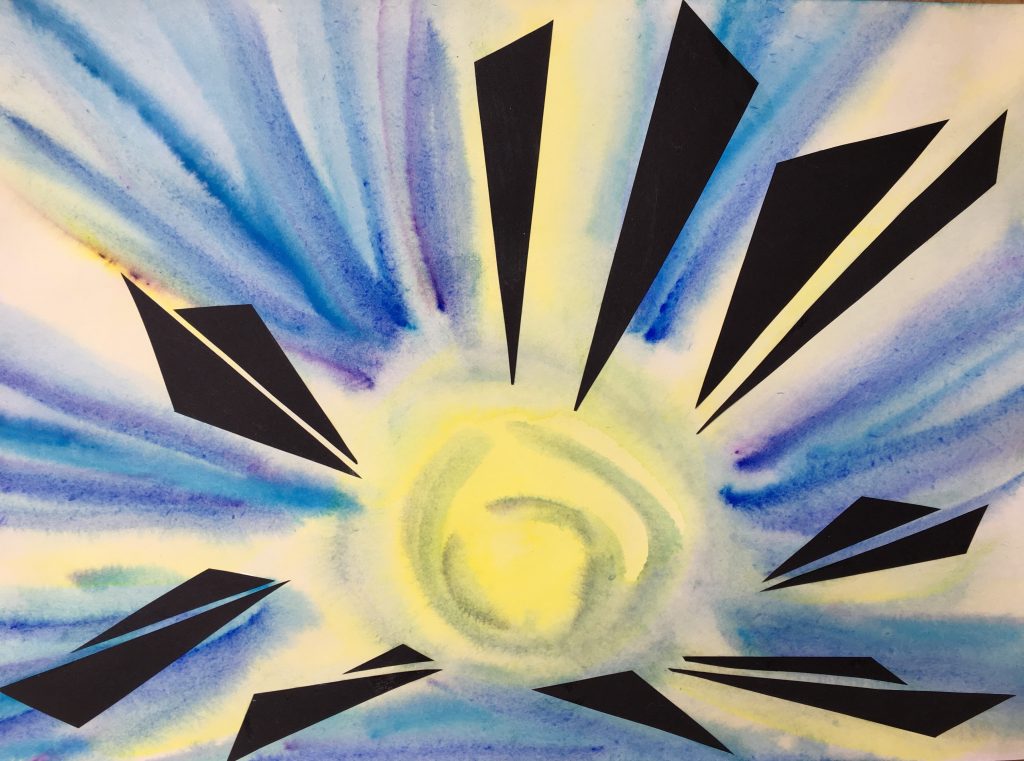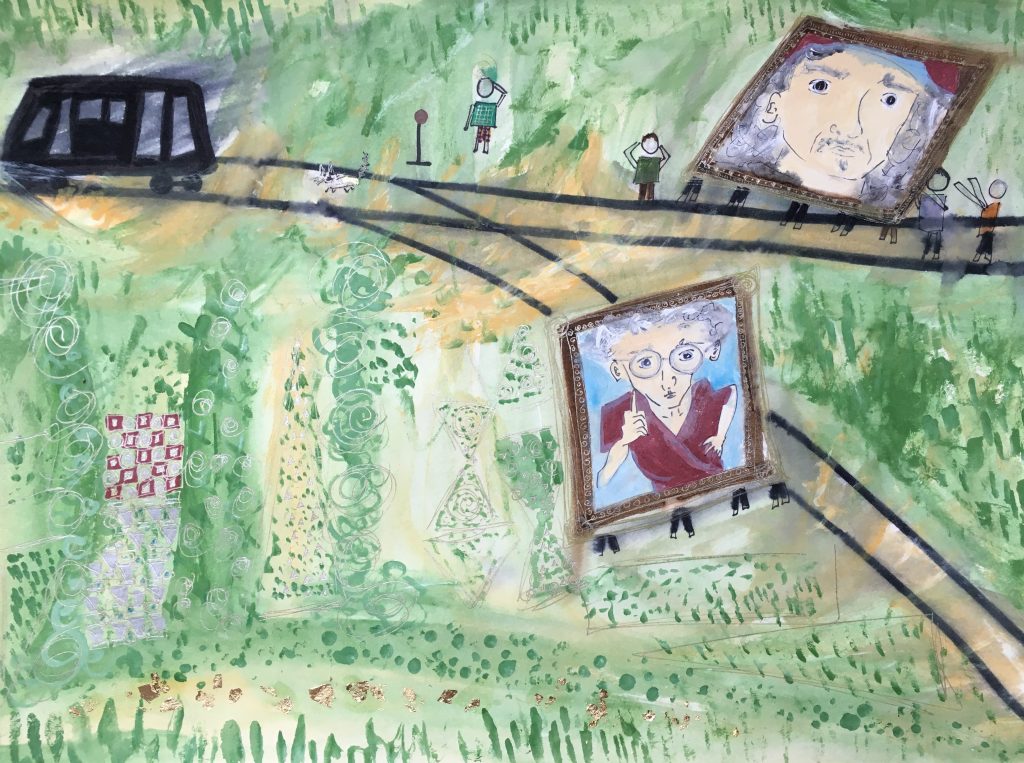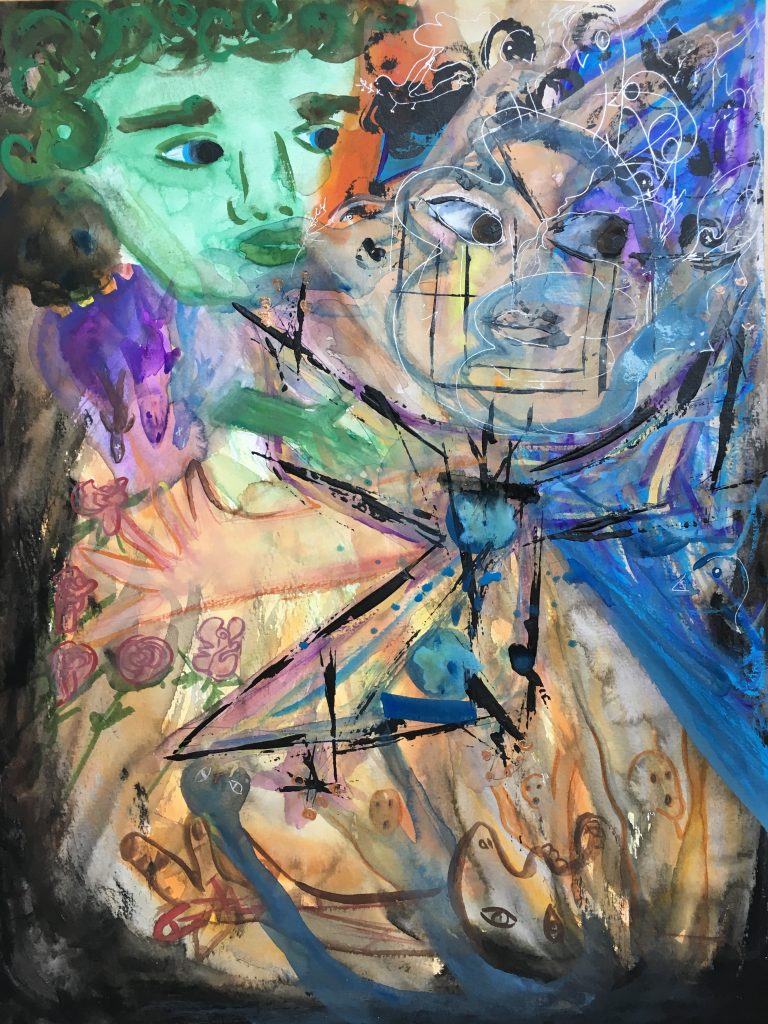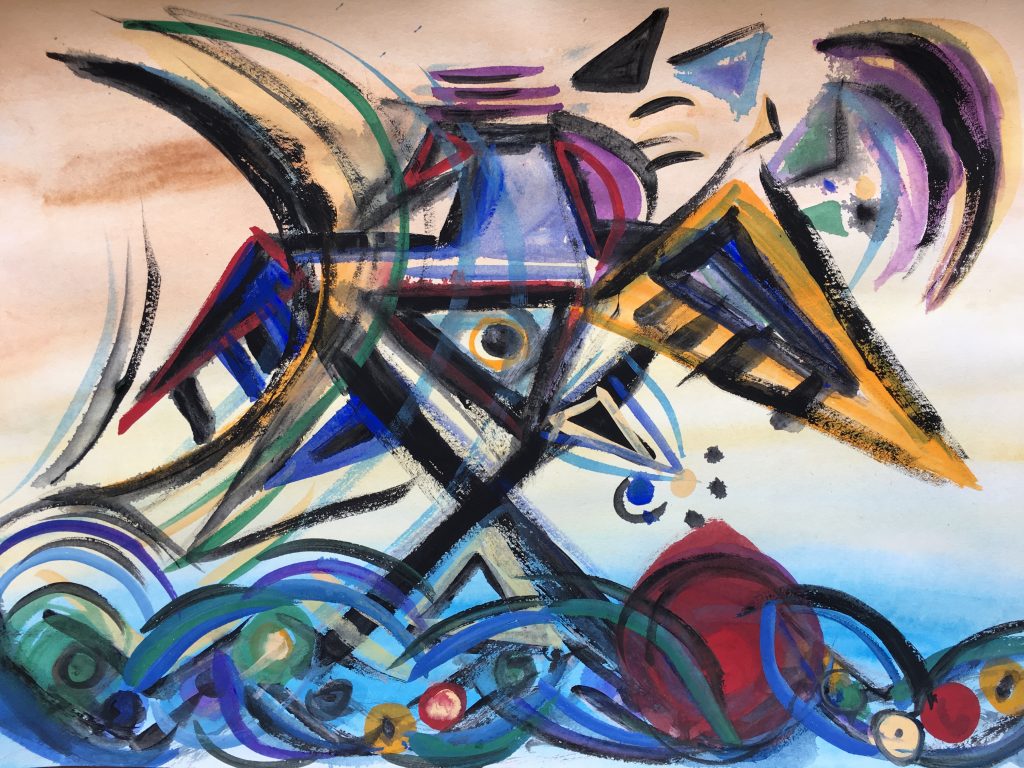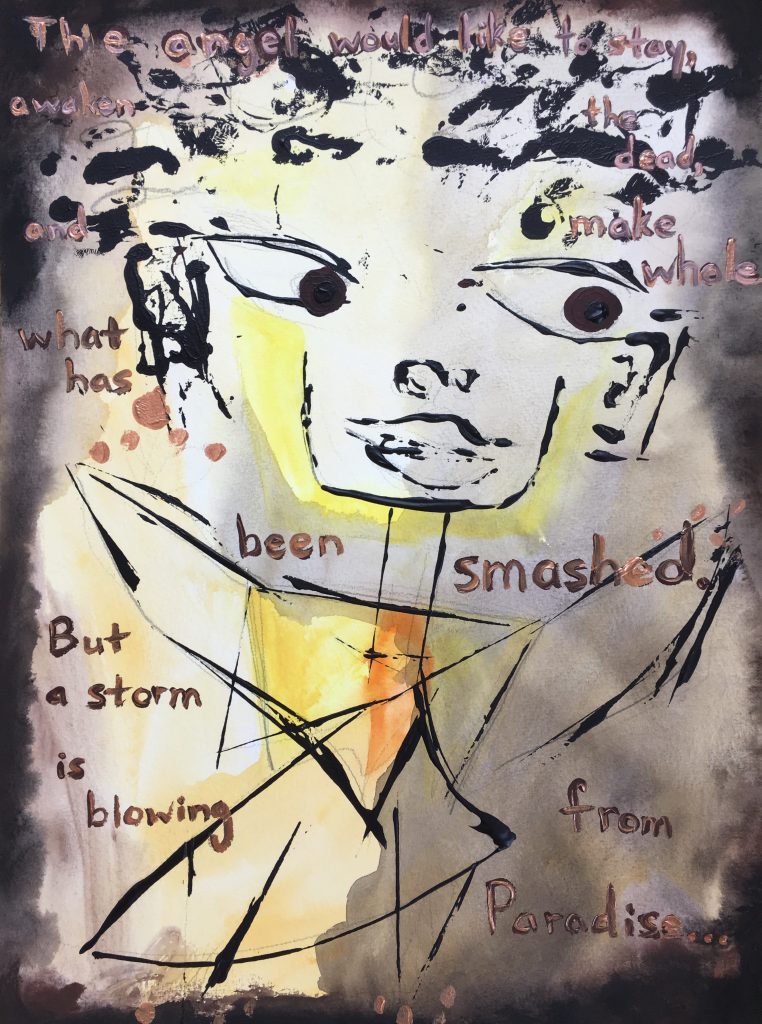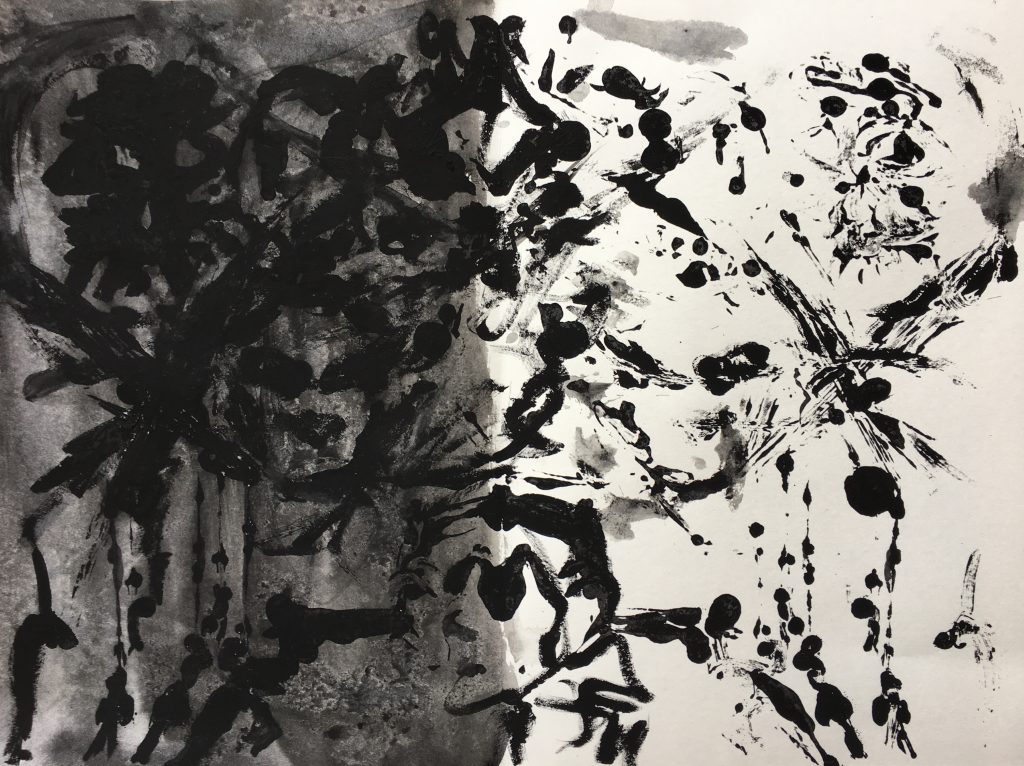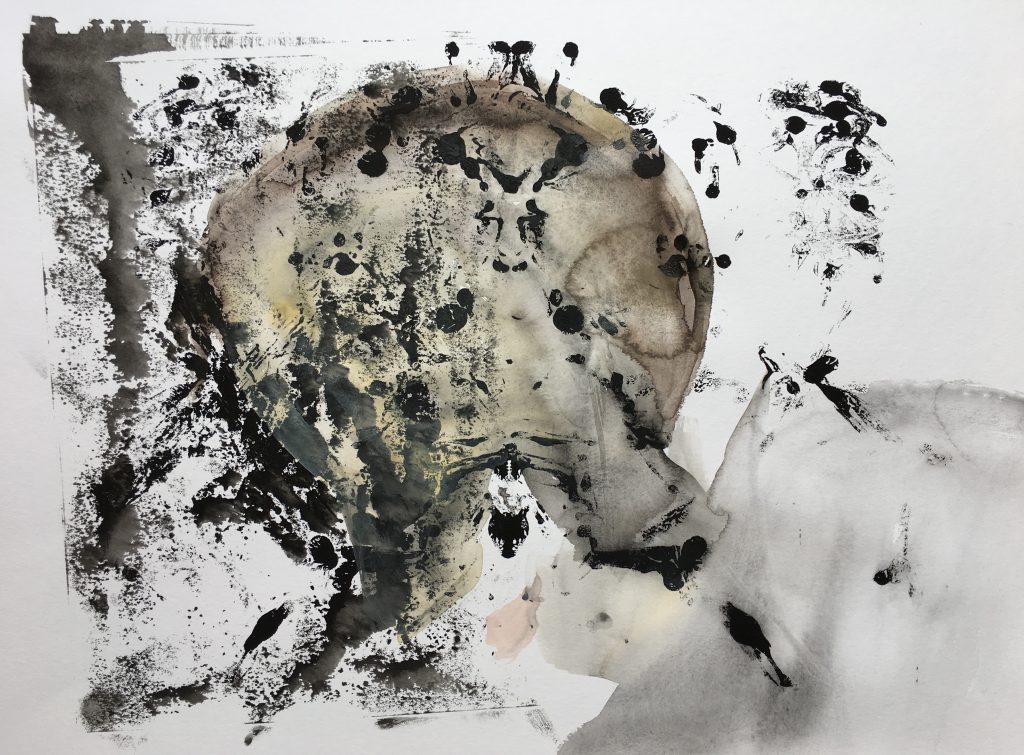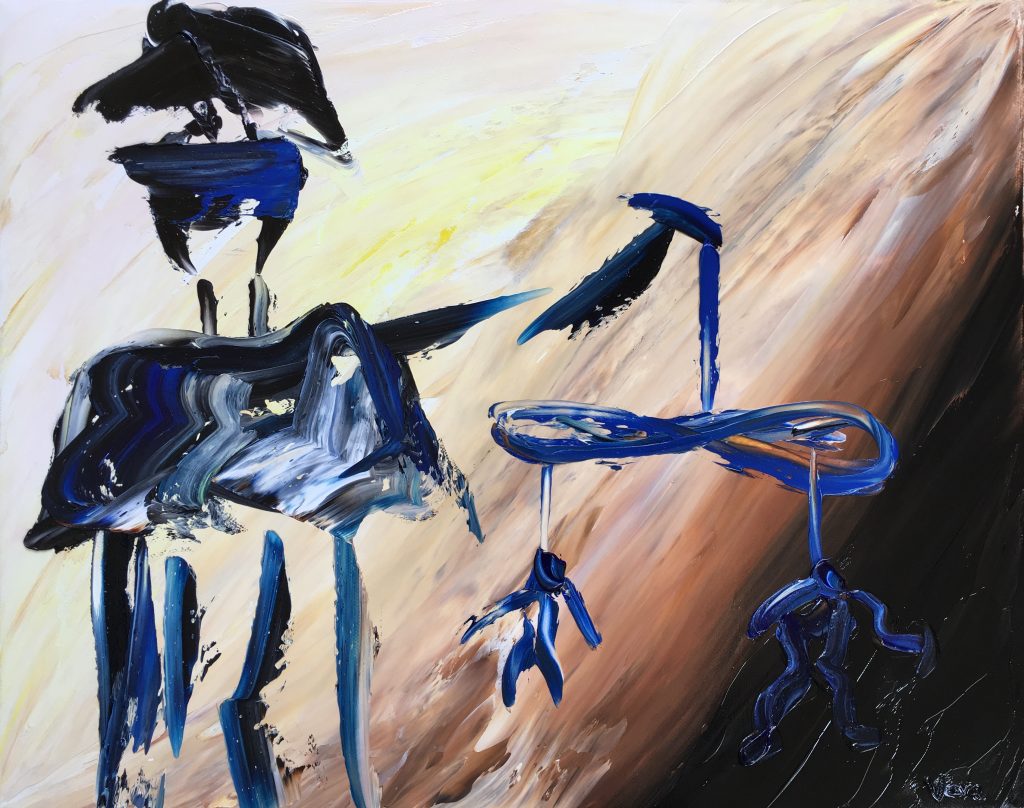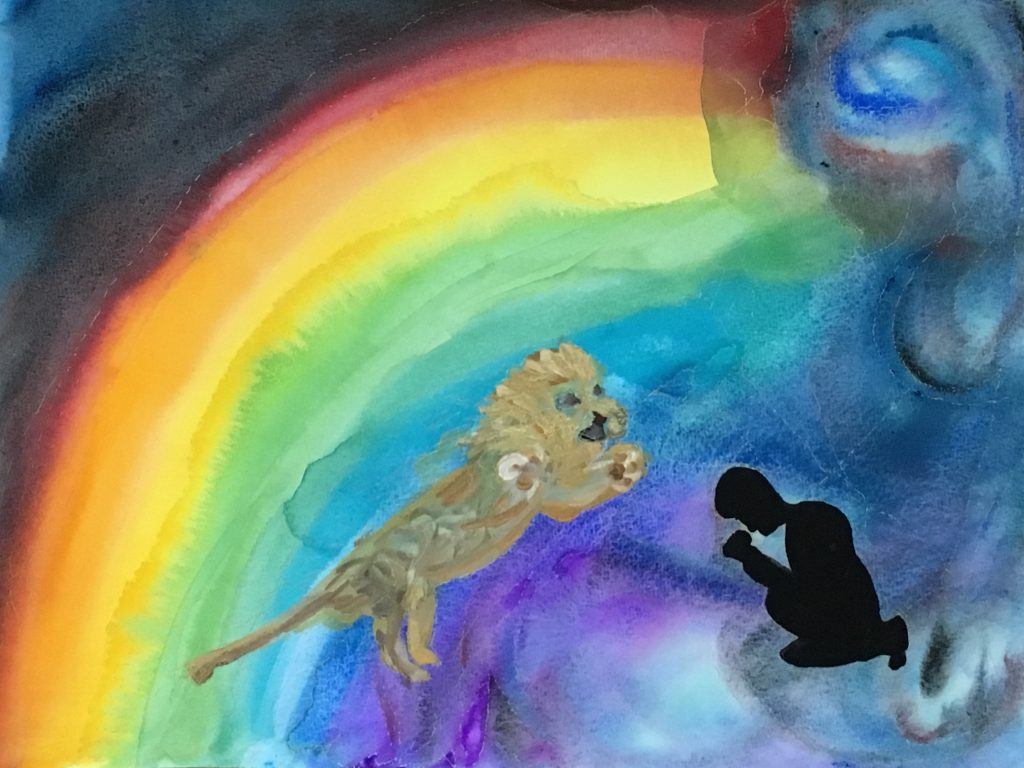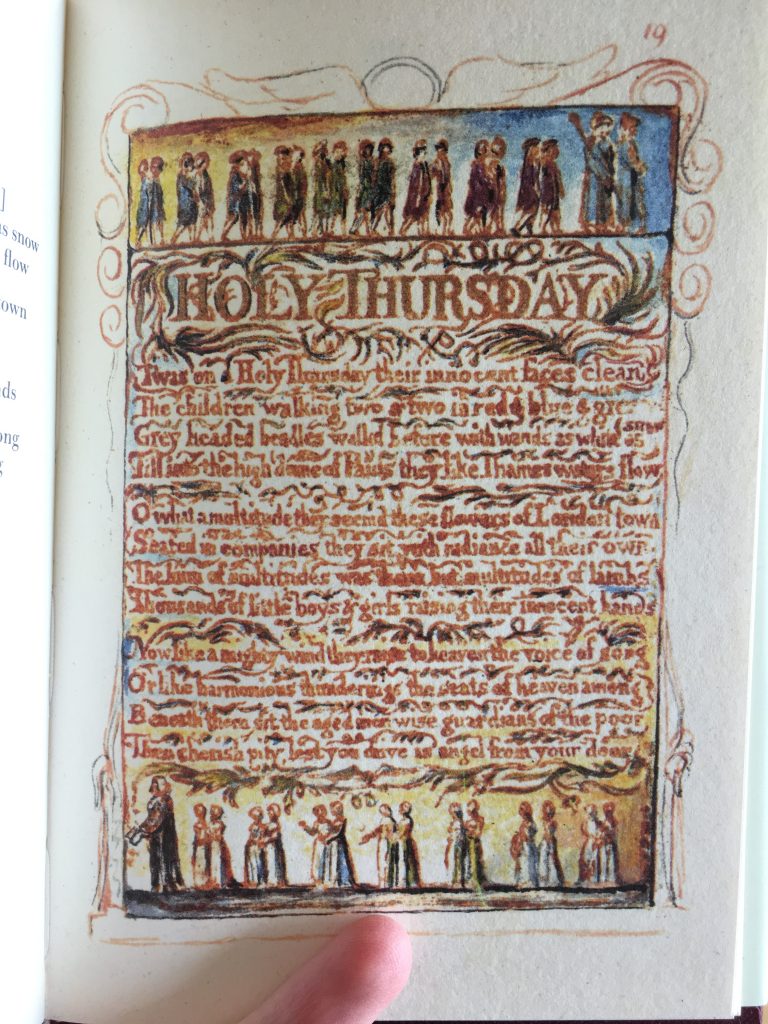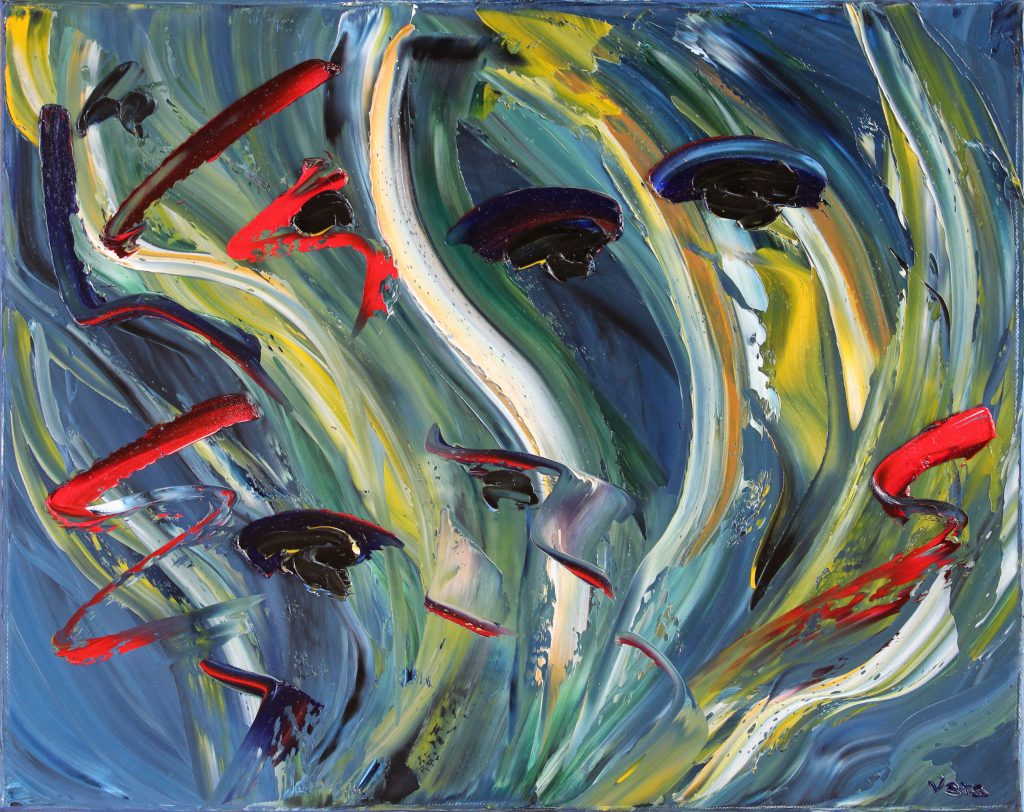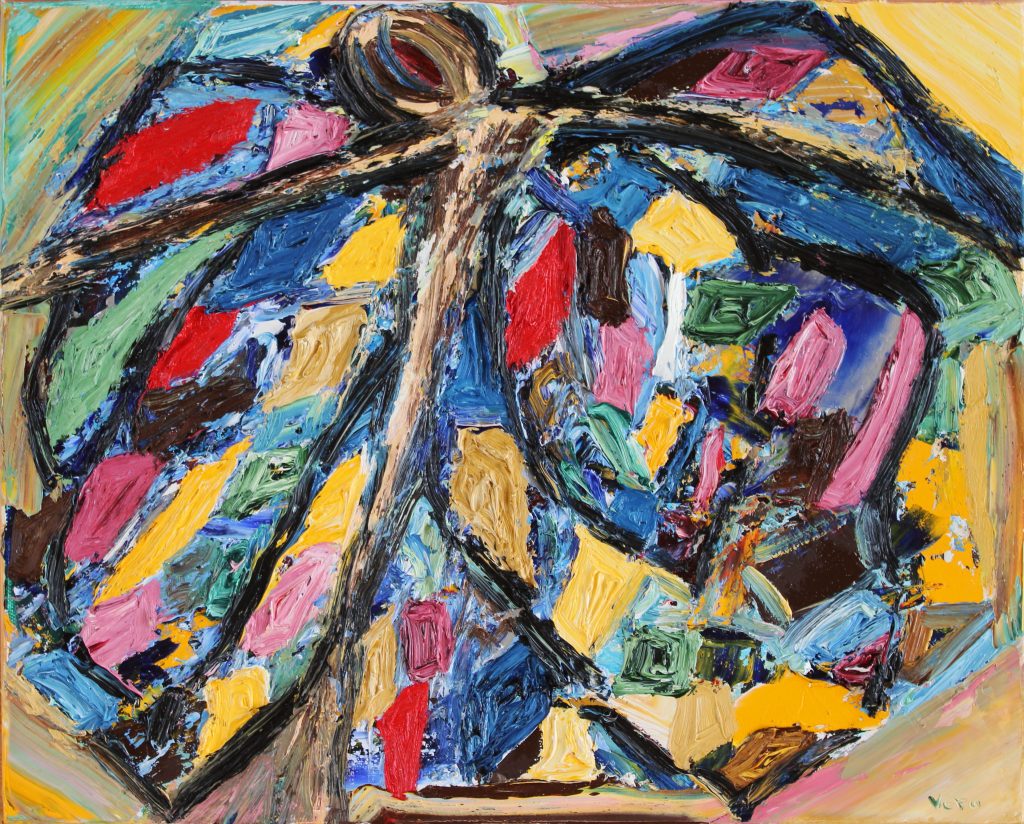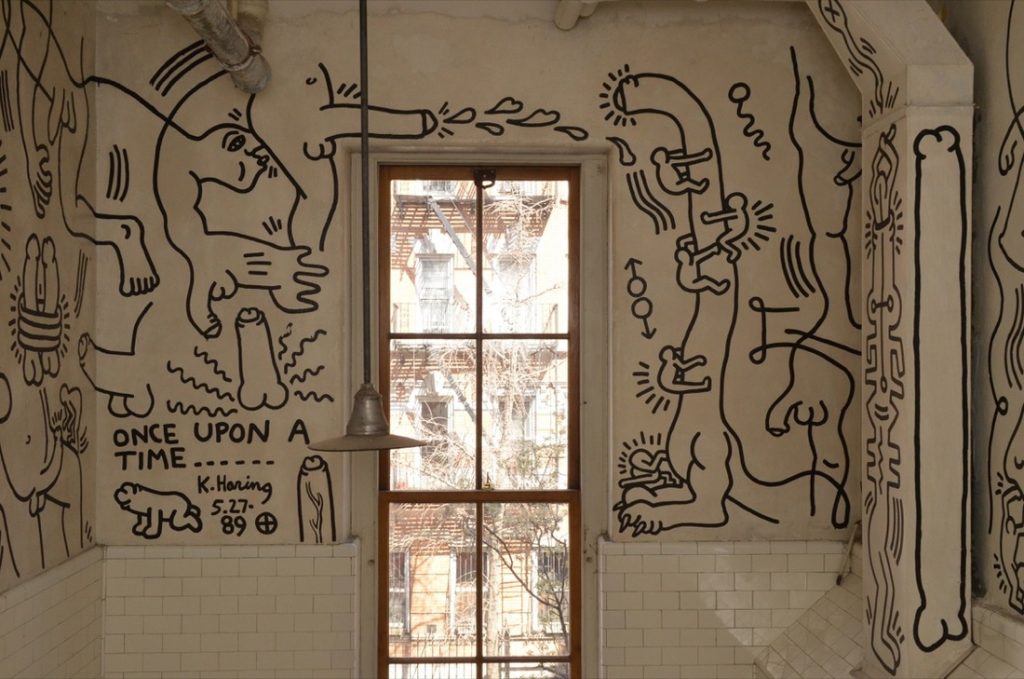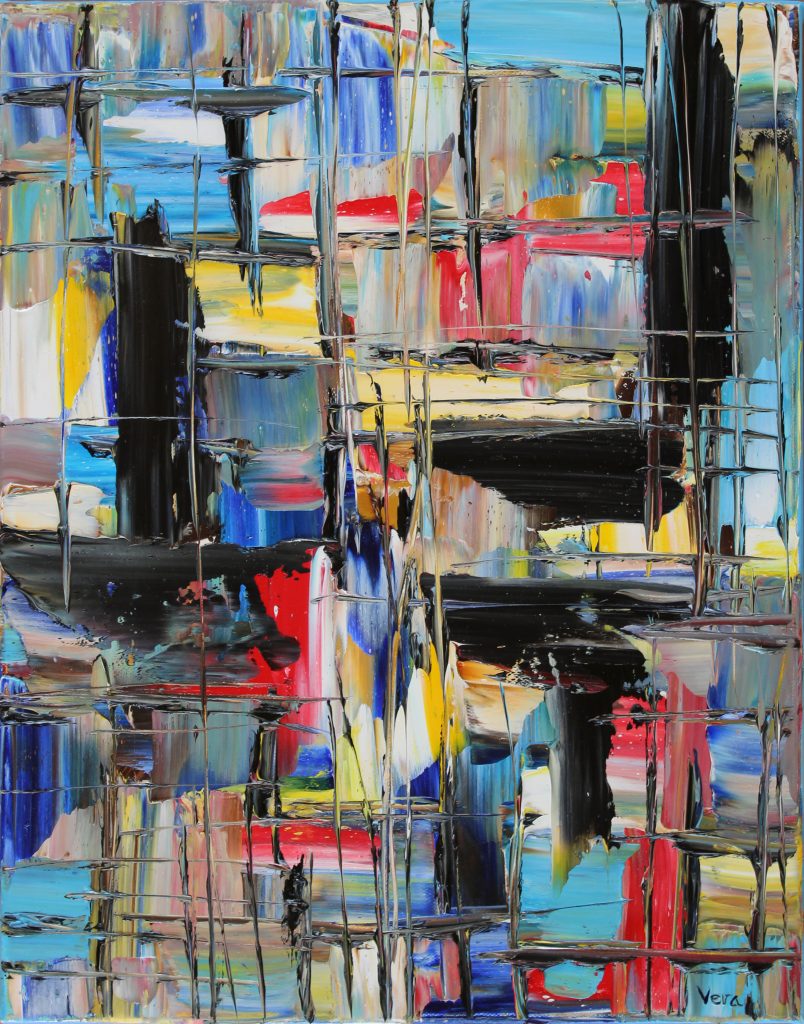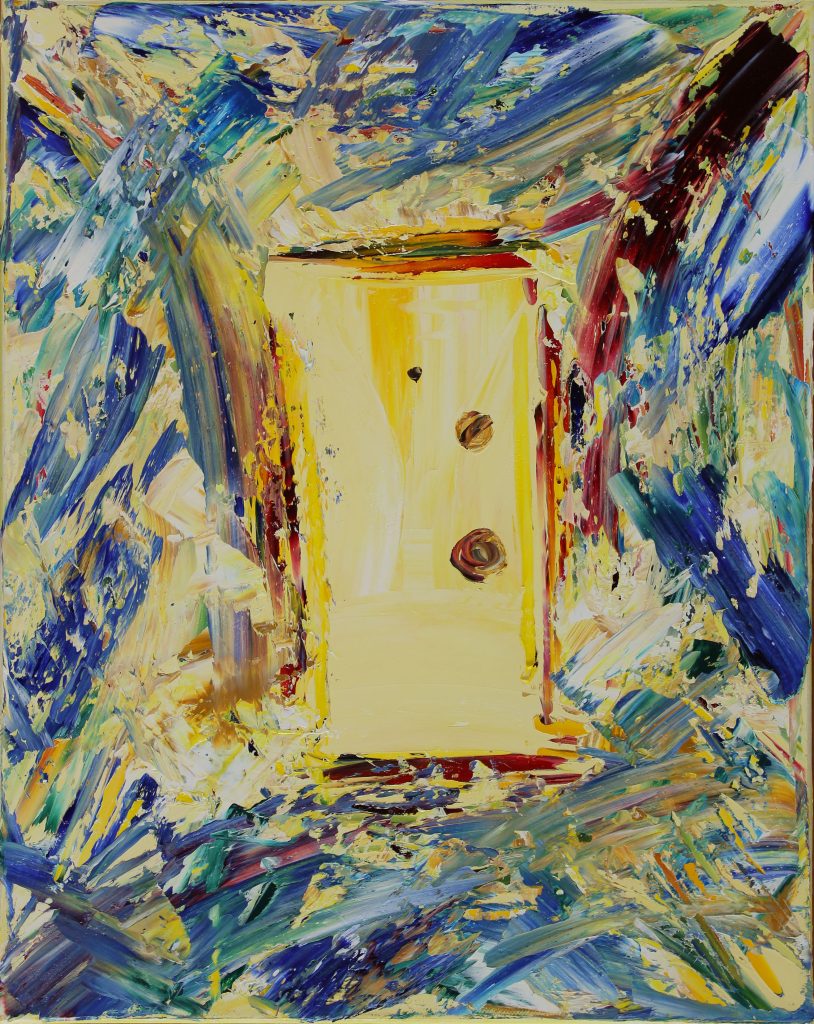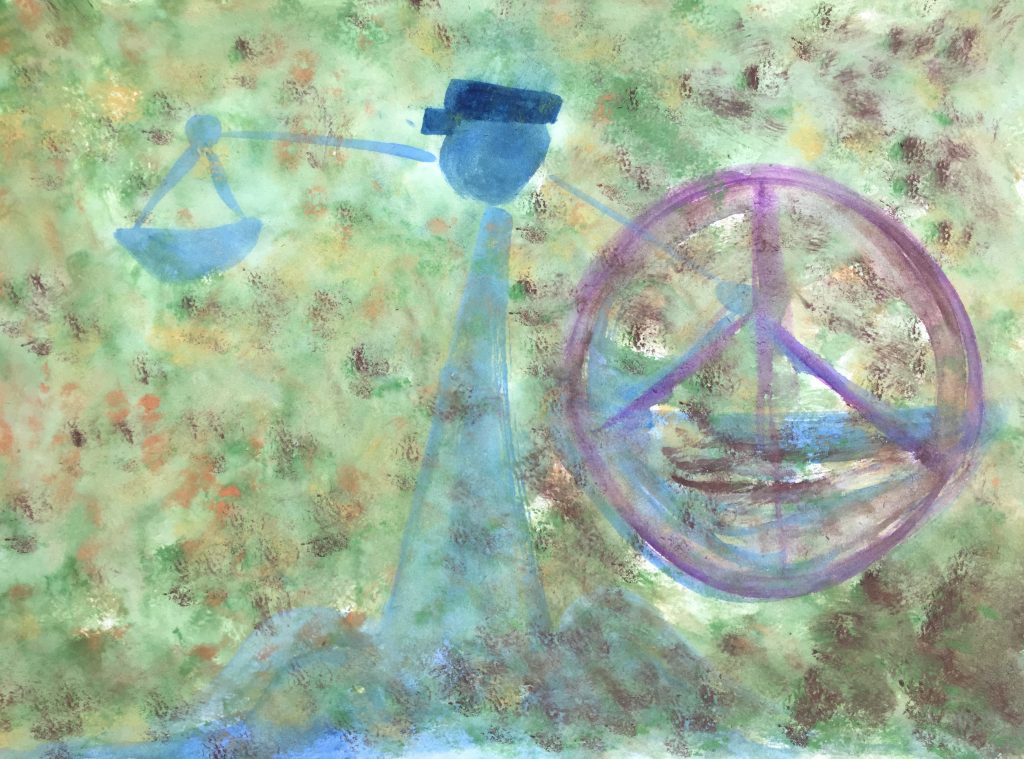
“Studies on Castile: Guilty Peace.” Graphite and gouache on A3 paper.
If you want to solve the problem of U.S. police killings, you have to first tackle the problems of gun, drug, and oil addictions—for which you have to first address the problem of corporate capture of the political system. If you want to solve a problem this week, you have to get organizations and activists working on problems like these to start using better information and operational security tools and practices—like email encryption—so that resistance can be independent and effective rather than being trivially derailed. And if you want to grapple with our continual attempts to make sense of the senseless, you have to make art…
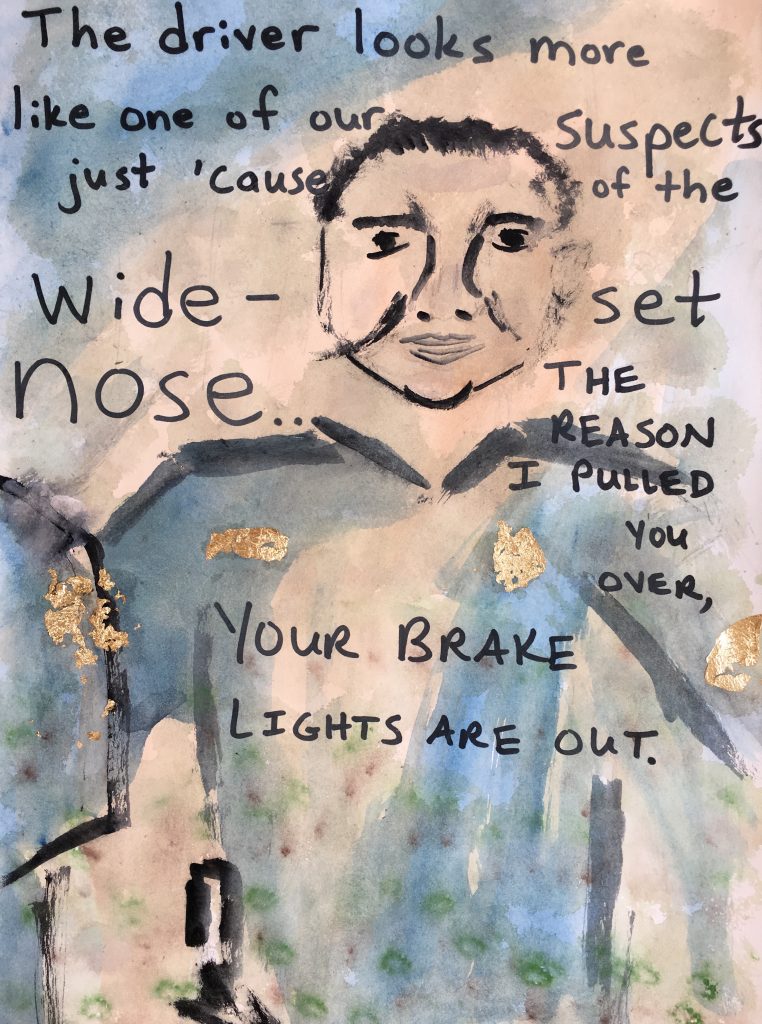
“Studies on Castile: Suspects… wide-set nose… brake lights.” Graphite, ink, gouache, and goldflake on A3 paper.
“The driver looks more like one of our suspects just ’cause of the wide-set nose… The reason I pulled you over, your brake lights are out.”
—Officer Jeronimo Yanez, who shot and killed Philando Castile in Minnesota on July 6, 2016, racially profiling and then lying to Castile before killing him.
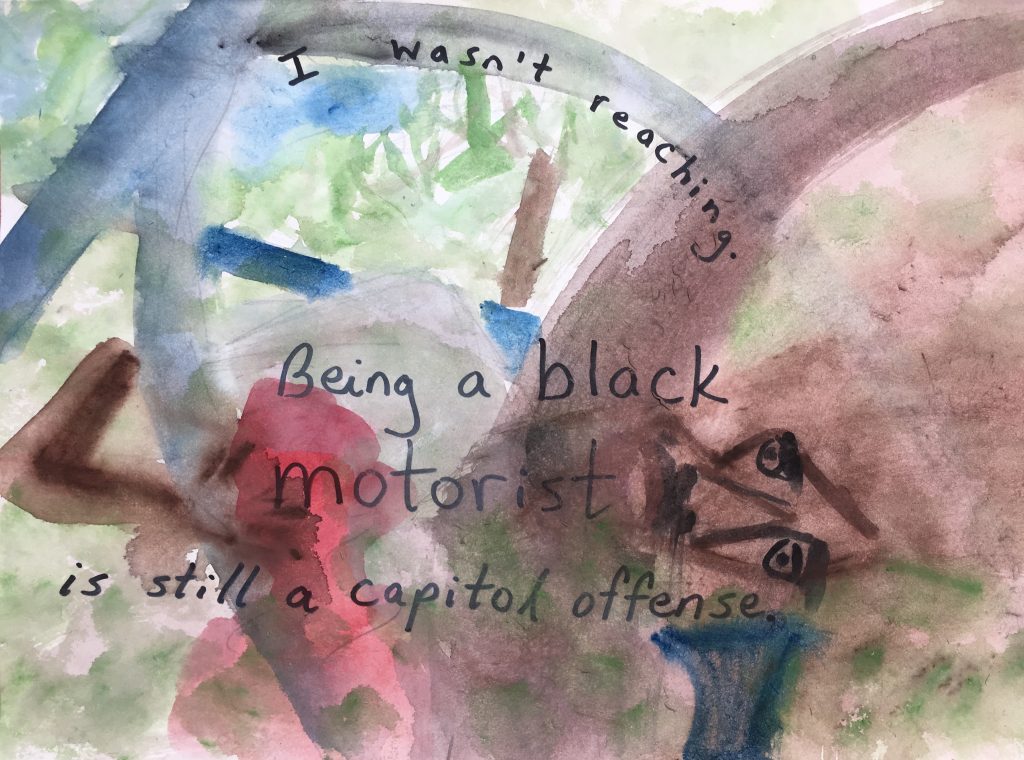
“Studies on Castile: I wasn’t reaching.” Graphite, ink, and gouache on A3 paper.
” ‘I wasn’t reaching’… ‘being a black motorist is still a capitol offense.’ ”
—Philando Castile after Yanez shot him, and comic Samantha Bee on the killing. Minnesota police tried (and failed) to get private Facebook messages, data, and metadata from the account of witness and girlfriend Diamond Reynolds, who live-streamed the aftermath of the killing. Their warrant came with an indefinite gag order, and was later ruled unconstitutional.
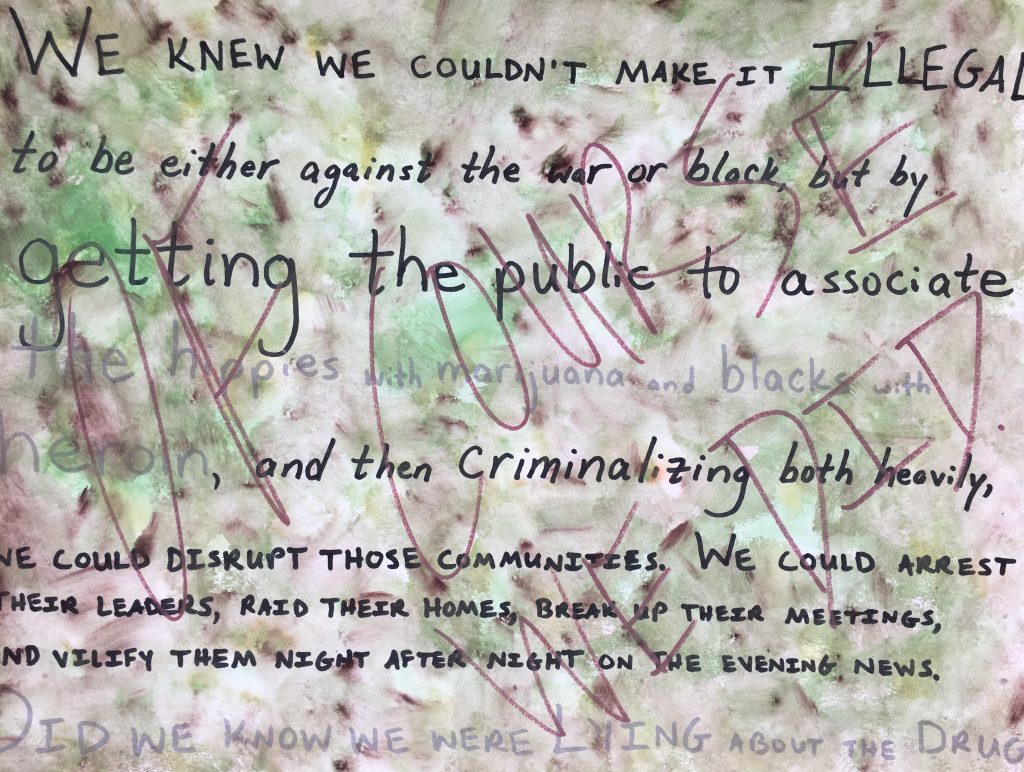
“Studies on Castile: We knew we were lying about the drugs.” Ink and gouache on 36 x 48 cm paper.
“We knew we couldn’t make it illegal to be either against the war or black, but by getting the public to associate the hippies with marijuana and blacks with heroin. And then criminalizing both heavily, we could disrupt those communities. We could arrest their leaders. raid their homes, break up their meetings, and vilify them night after night on the evening news. Did we know we were lying about the drugs? Of course we did.”
—John Ehrlichman, former Nixon domestic policy chief and drug war architect.
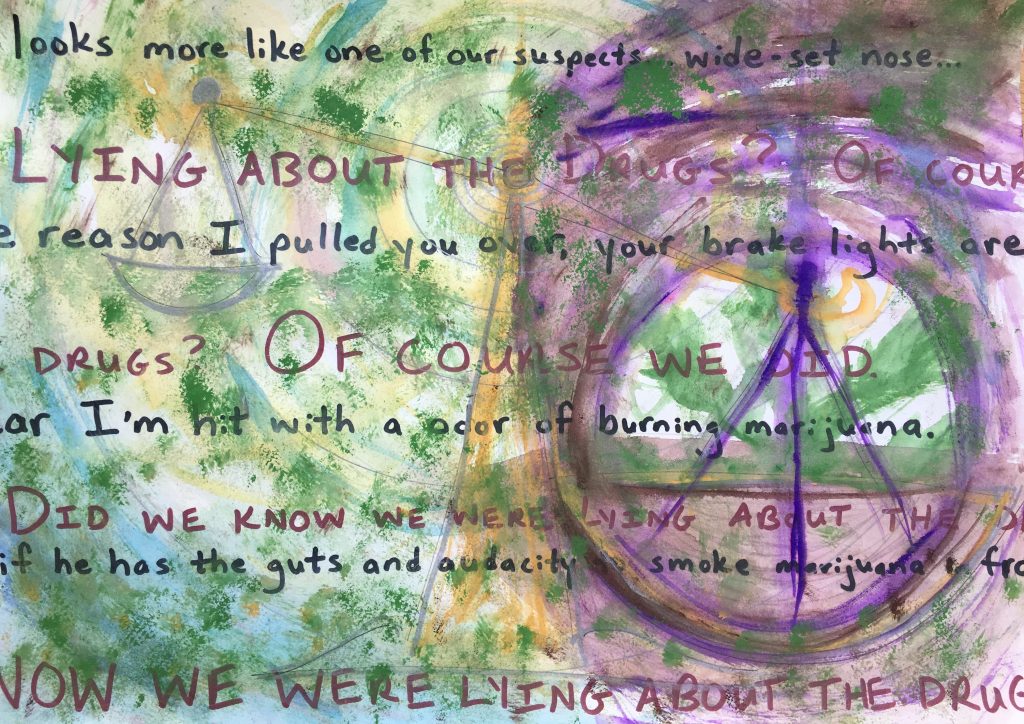
“Studies on Castile: Marijuana, marijuana, rounds.” Graphite, ink, and gouache on A3 paper.
“As soon as I get up to the car I’m hit with a odor of burning marijuana… And I thought if he’s, if he has the guts and the audacity to smoke marijuana in front of the five year old girl and risk her lungs and risk her life by giving her secondhand smoke and the front seat passenger doing the same thing, then what, what care does he give about me. And I let off the rounds.”
—Officer Yanez’s criminal trial testimony blaming his killing of Castile on Castile’s marijuana use.
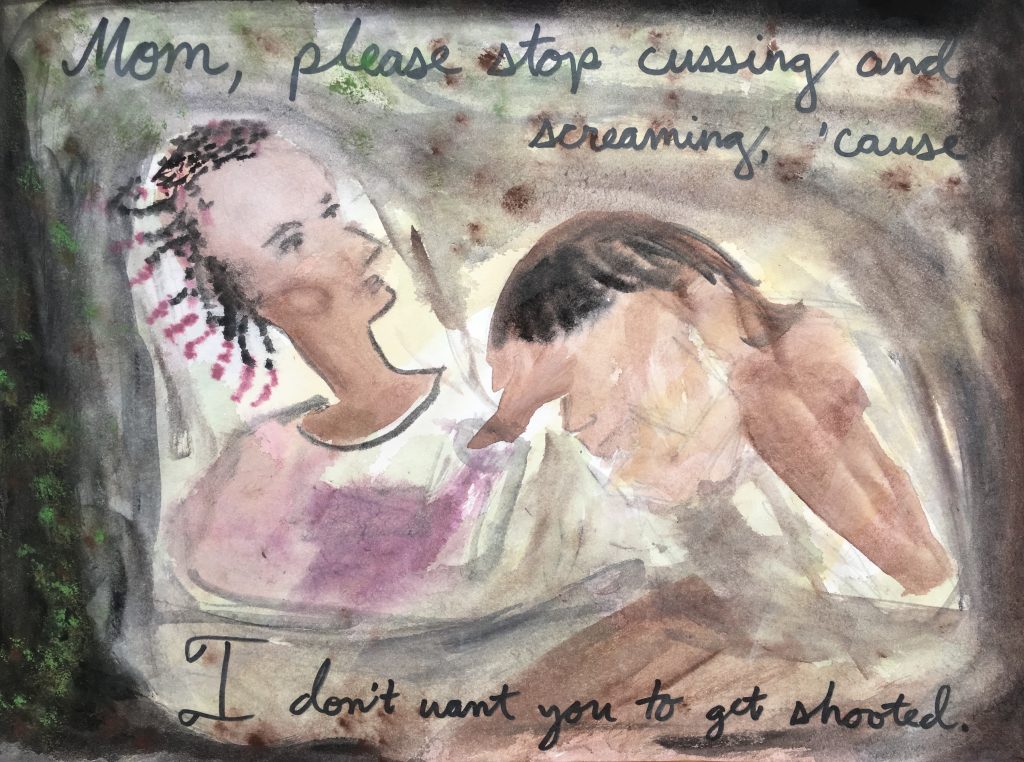
“Studies on Castile: Mom, don’t get shooted.” Graphite and gouache on A3 paper.
“Mom, please stop cussing and screaming ’cause I don’t want you to get shooted.”
—Diamond Reynolds’ four-year-old daughter in the backseat of a police car with her handcuffed mother after the killing.
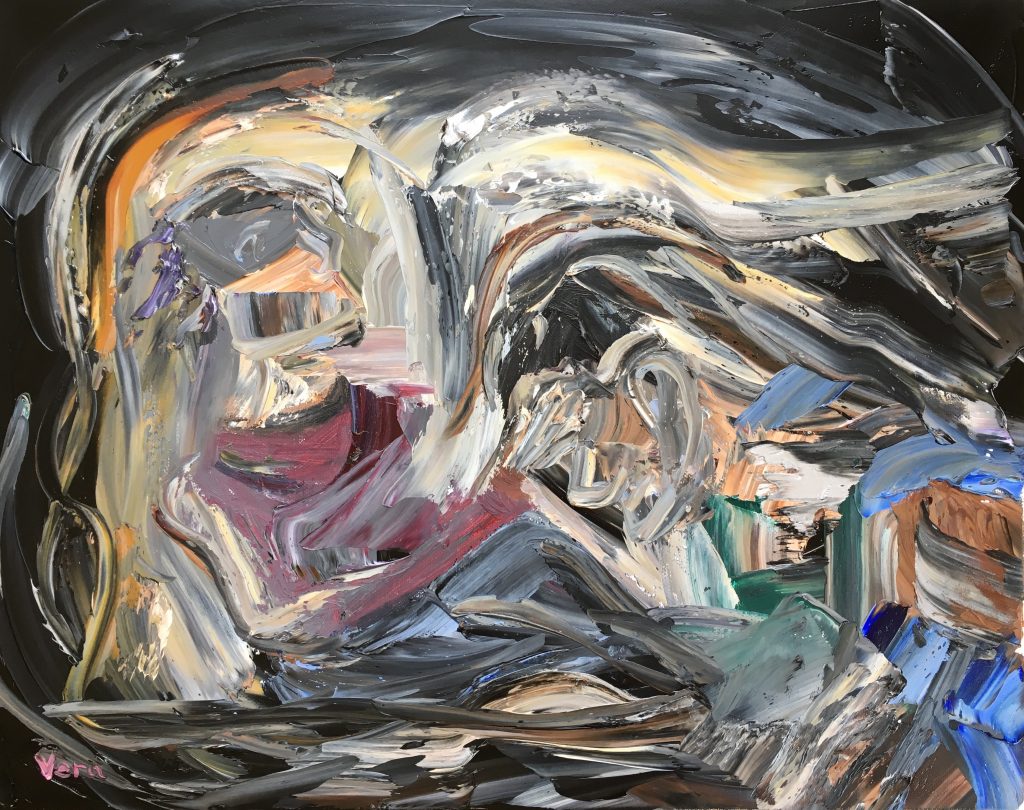
“Studies on Castile: Backseat Side of Silence.” Oils on 40 x 50 cm stretched canvas.
“Backseat Side of Silence”
On Jeronimo Yanez’s murder of Philando Castile.
You won’t hear from the good cops, although
so many cops are good, because it is impossible to speak out
without a face in a police state where your phone and computer
can be hacked without a trace, your texts and emails read—
and your boys will have your head for speaking out.
You won’t hear from the good cops, because
when one Chief started clapping as he does
about drones and blowing up Americans without
due process because terror rarer raaah raaaah raaaaaaah—
then everybody had to join in with the band/siss boom baaaah
and in a well-placed beat all the Major City Chiefs
and all the Major County Sheriffs were on their feet
cheering the holy holy holy killing of Sheikhs,
and not one sat for the Constitution on which they stood.
You won’t hear from the good cops, because
there is something hypnotic about the mantra of the tribe,
about “serving and protecting life liberty & property” or,
as the temporarily disadvantaged millionaire hive
calls it—the pursuit of happiness in America.
It sounds so good, how could it be bad?
The fairy-tale sparkles and statistics are a bore.
Communism failed and was a sad loser fad.
You can make it if you try and try more, more, more!
You won’t hear from the good cops, because they know this:
when others kill, it is a crime—but when they kill,
it is a necessary skill in fulfilling the servant’s duty, thanks deserved,
to protect life. So while cop killers do time,
killer cops talk their fearful talk and walk,
because freedom is slavery, ignorance is bliss,
and corpses have been served.
You won’t hear from the good cops, because
carrying a gun makes you afraid, and fear makes you dumb.
Don’t think Jeronimo Yanez was the only one
to fear the fearful citizen who said he had a gun.
Although Philando followed instructions to the letter of the law,
the color of his skin outweighed whatever jurors saw.
Things do not speak for themselves. Res ipsa loquitor:
black life doesn’t matter to a lone juror.
You won’t see the good cops marching in the streets
against racist police, because the good cops are whiter than their beats.
You won’t notice the good cops eating jerk chicken
on the corner as neighbors get to know each other, elbowing in
to ask for tea and how is Darius these days,
and Auntie please remind him there are other ways—
because a program is telling them where to stand
as a supervisor gives his monthly arrests demand.
I can try to tell you why you won’t hear from the good cops,
because we ask each other questions when the shoe drops,
justice fails, and somehow sense must be remade
though it hangs dripping on the blade.
It matters but it doesn’t matter more
than what I can’t begin to explore.
You won’t hear from the little girl in the back seat
when she finishes screaming after years
and so many nights in terror and in tears
in the dream where sound explodes up front
while her own sound does not come
her own legs do not move on command
and her own life flashes, so small and quick,
before her tight-clenched eyes open to greet
the killers’ unignorable demand
to join the world outside
the childhood that had just died.
And she cannot bear to close her eyes
for fear of seeing everyone
and no one in the front,
and language fails—dishonest, slick.
I can’t tell you if you don’t know the why’s.
But the little girl’s already spoken, her witness undisputed:
“Mom, please stop cussing and screaming ’cause I don’t want you to get shooted.”
The screaming mother muted by her baby’s love undiluted—
a child who’s just seen a man executed.
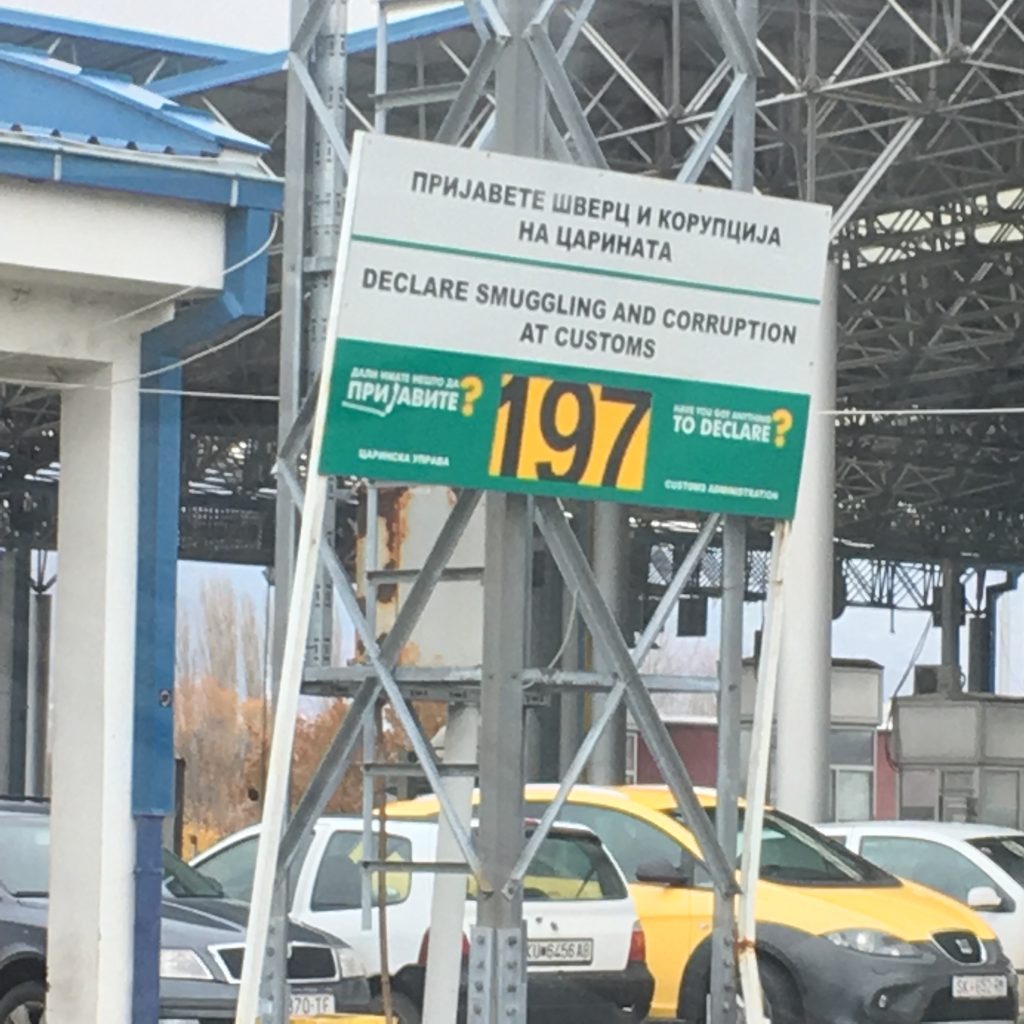
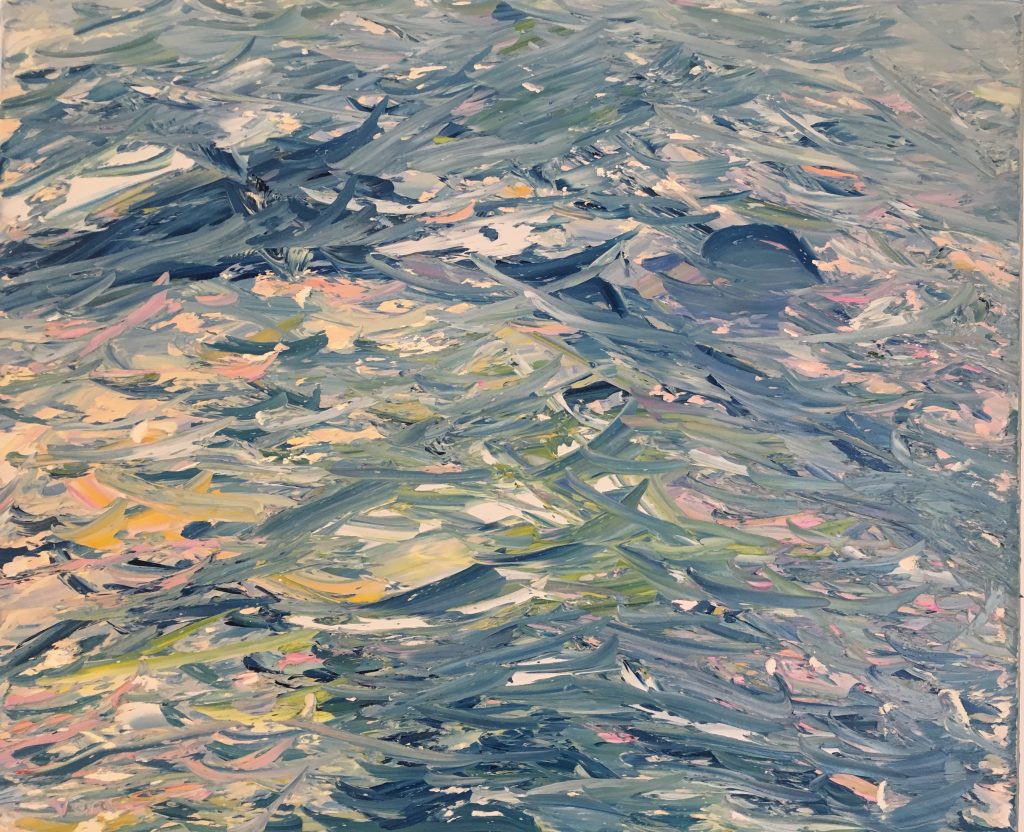
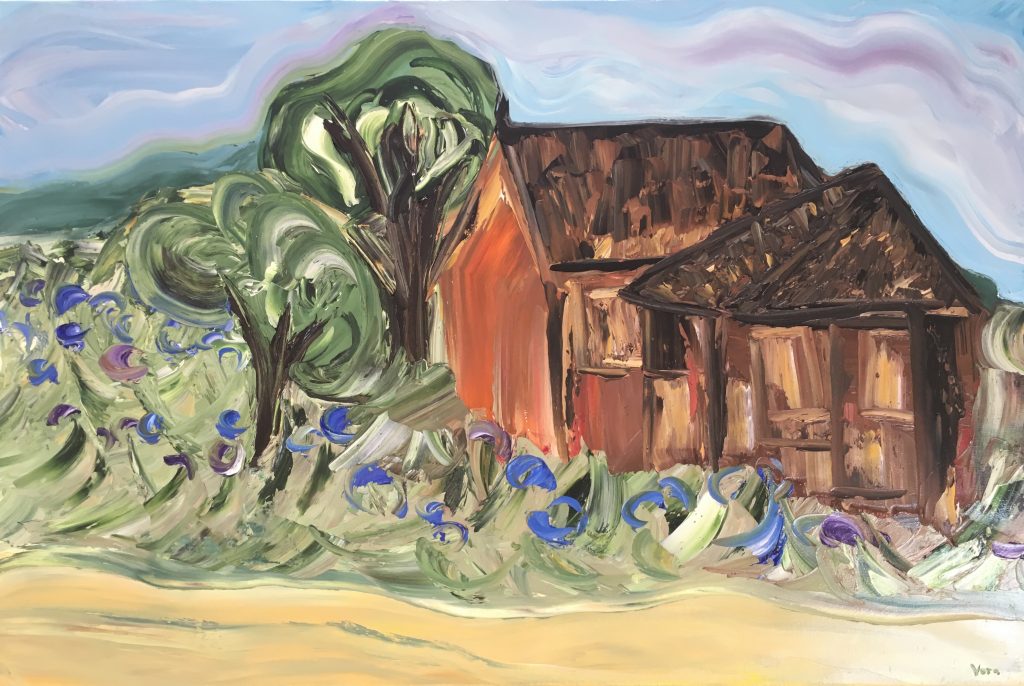
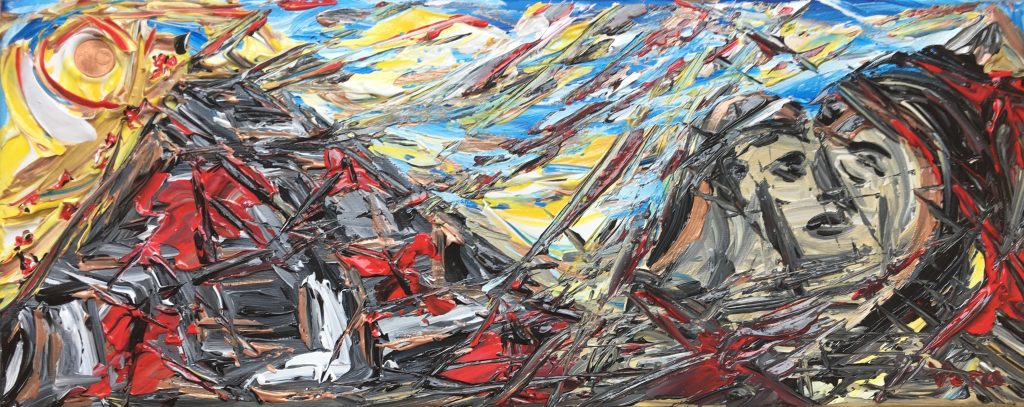
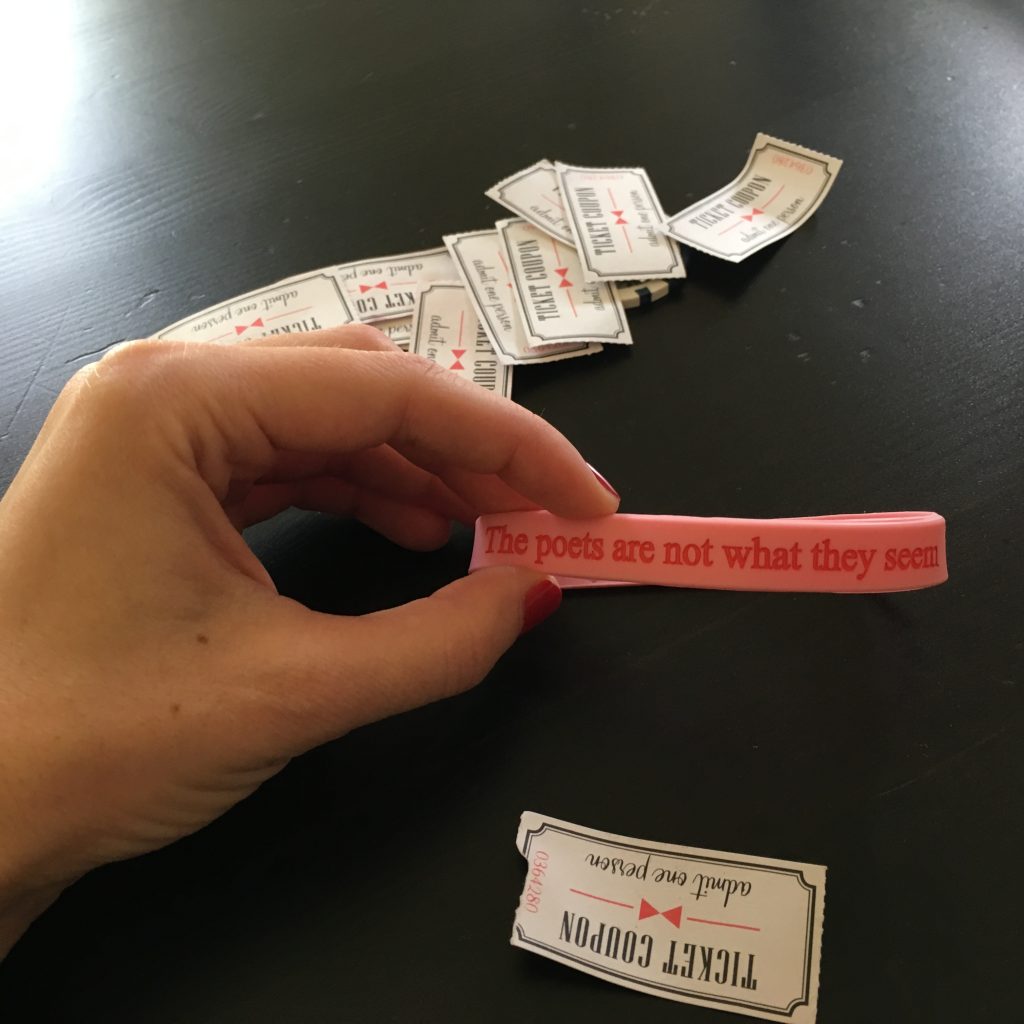
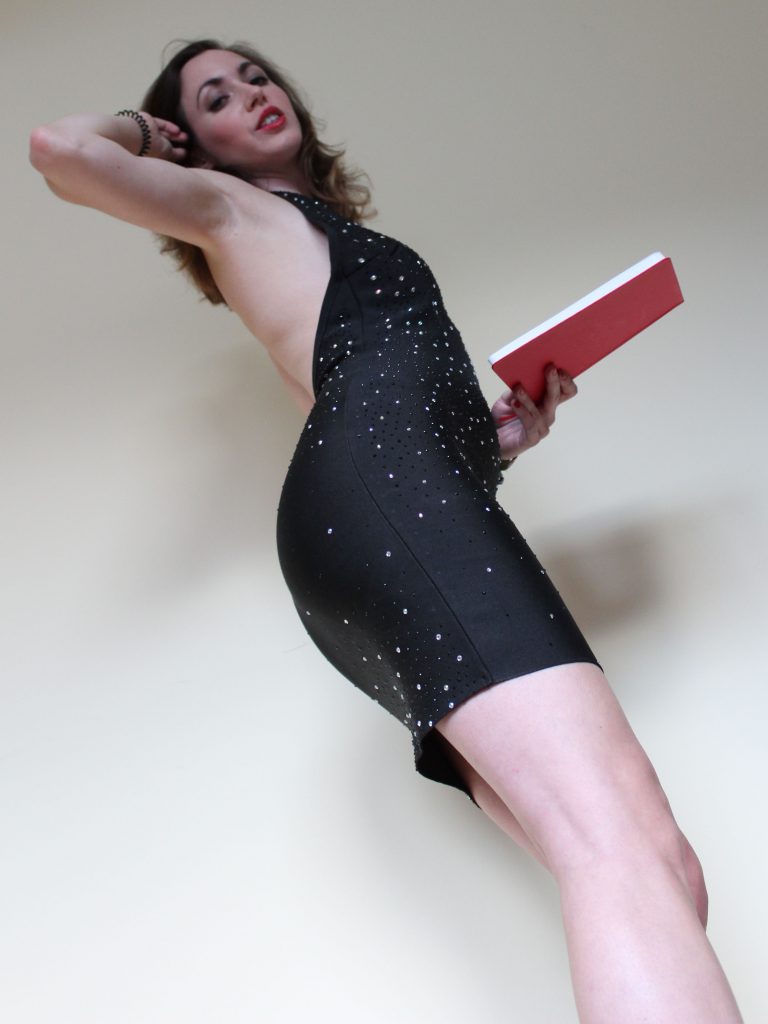

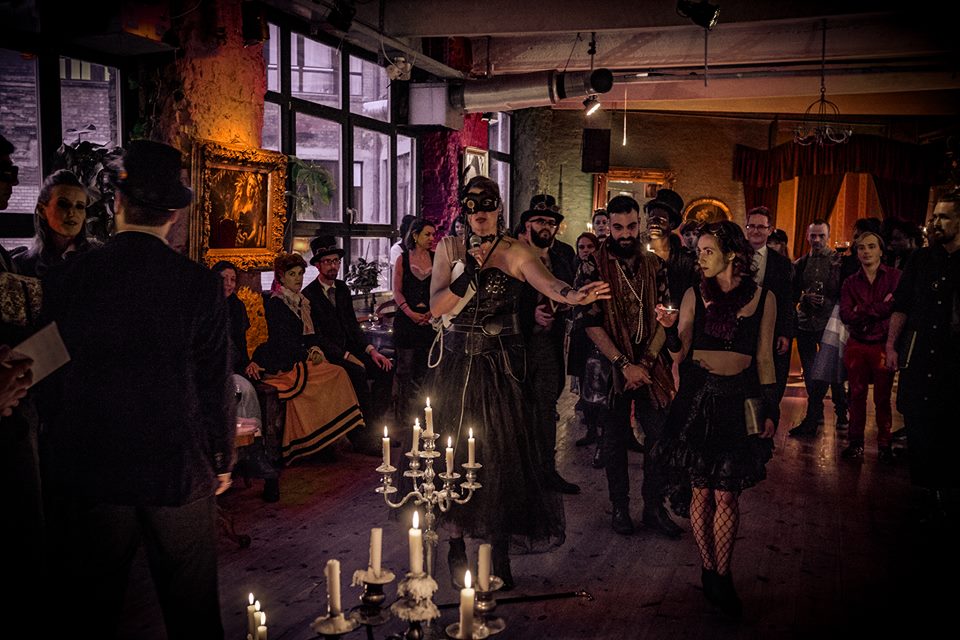
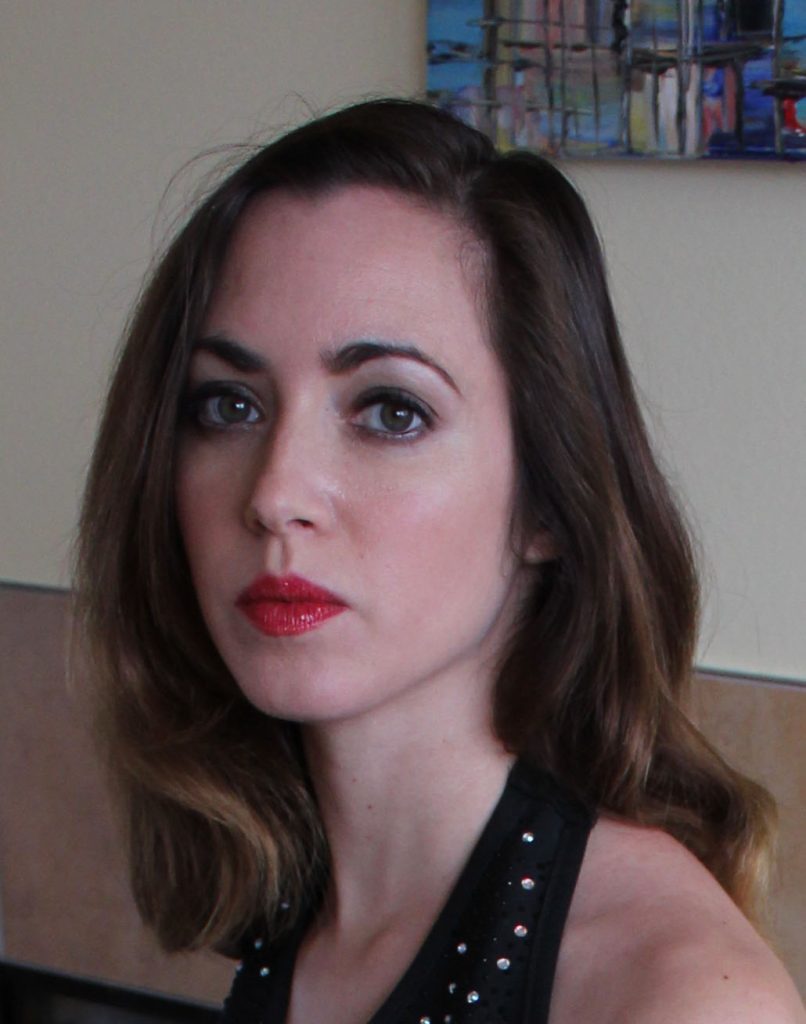 Photo credit: Rop.
Photo credit: Rop.